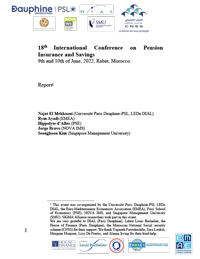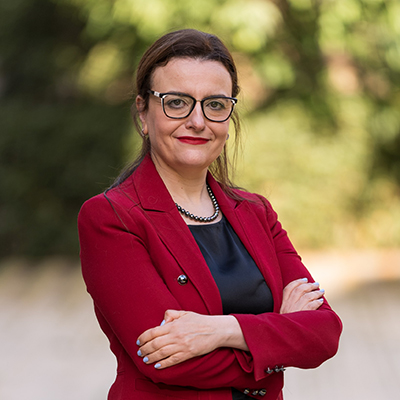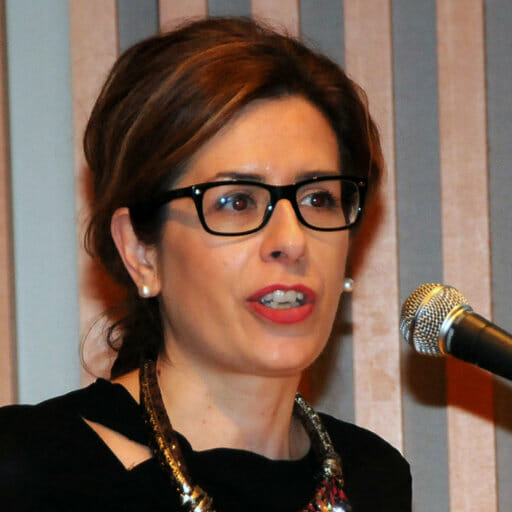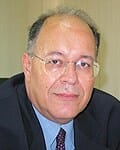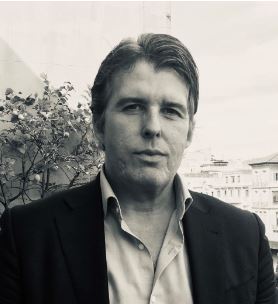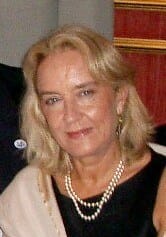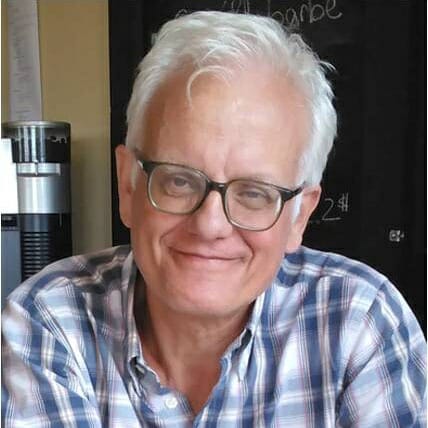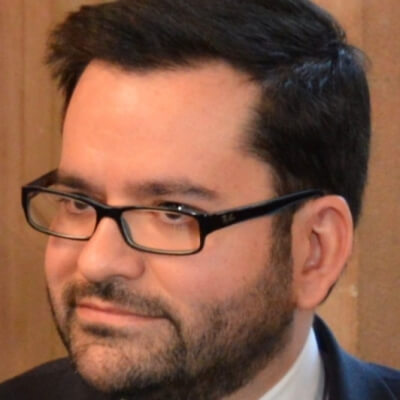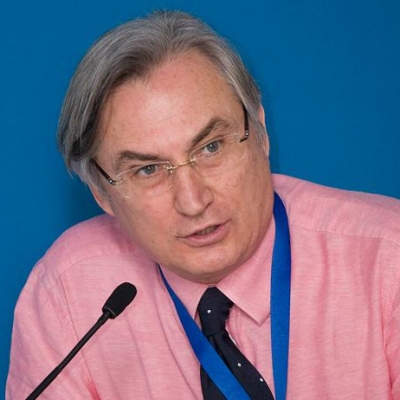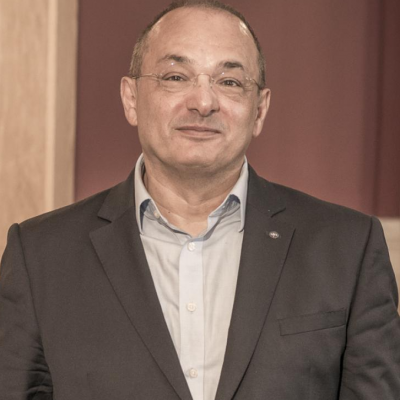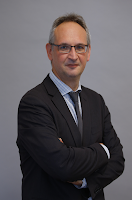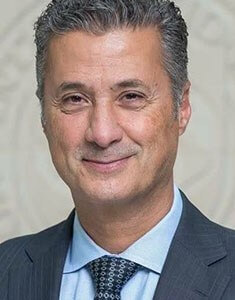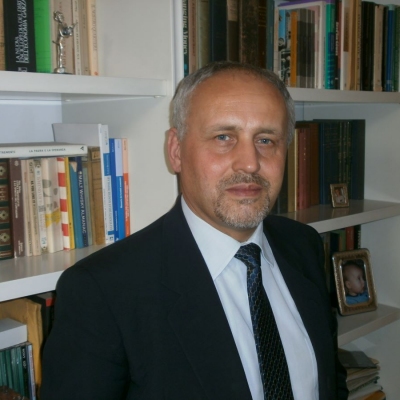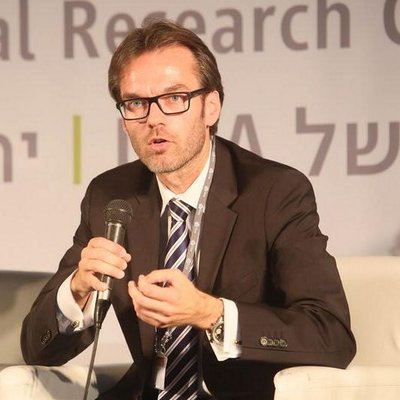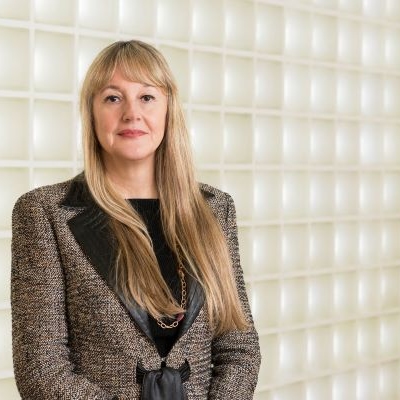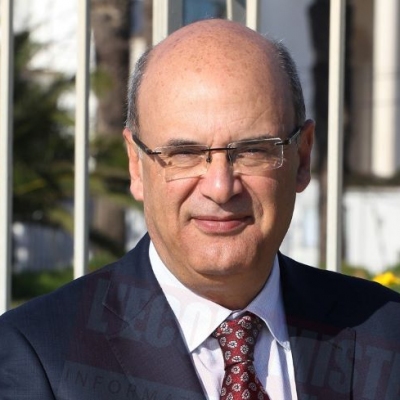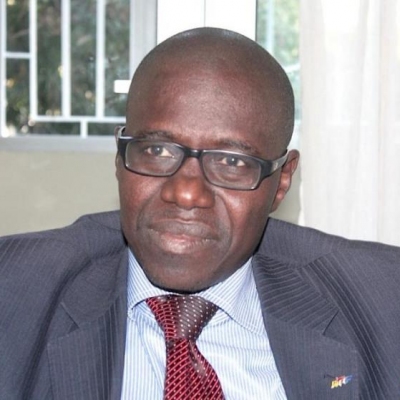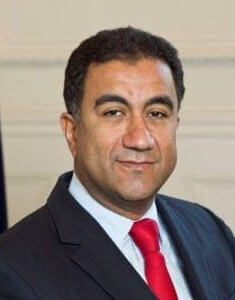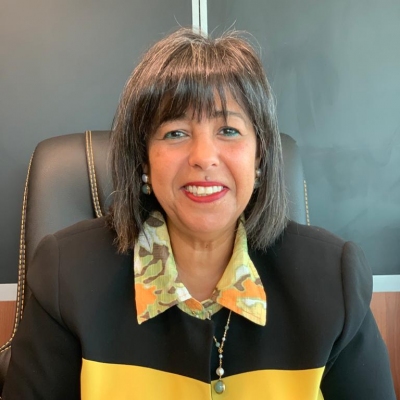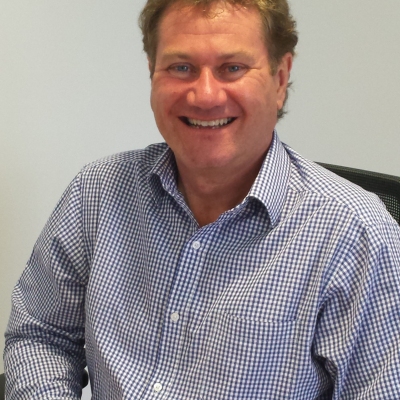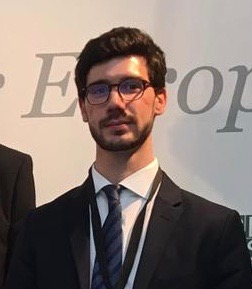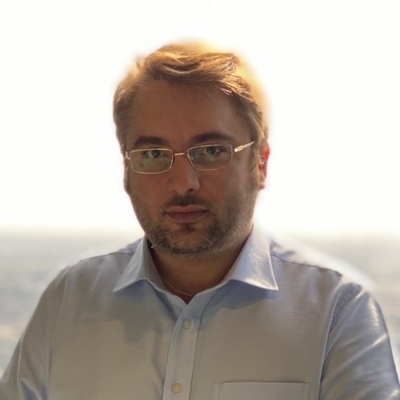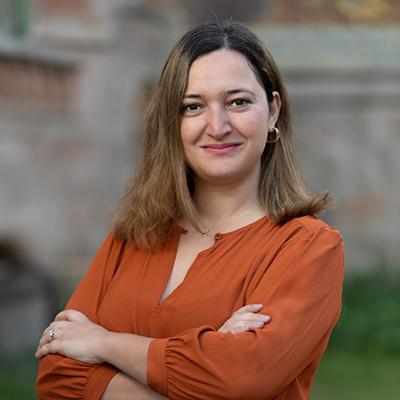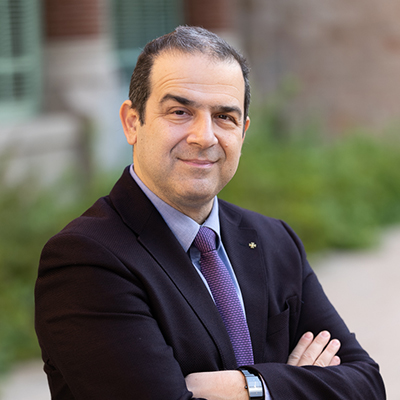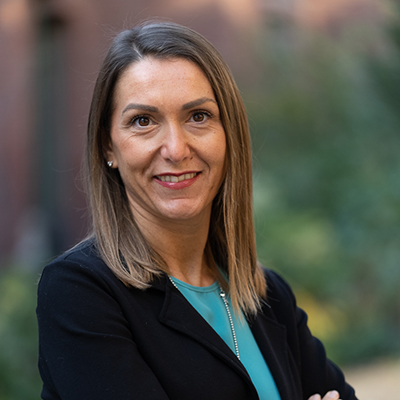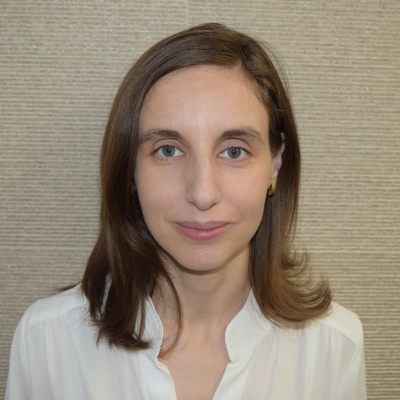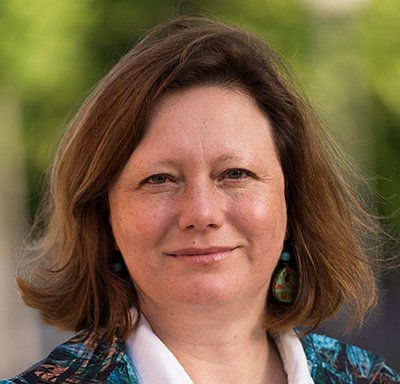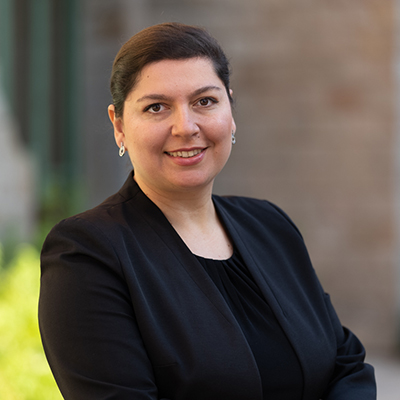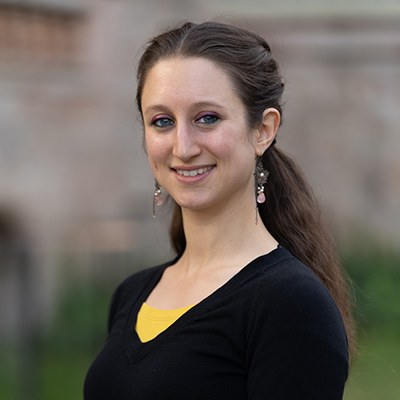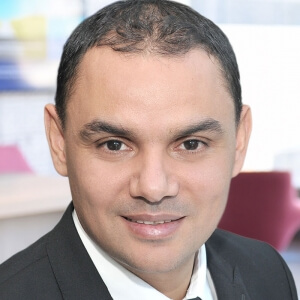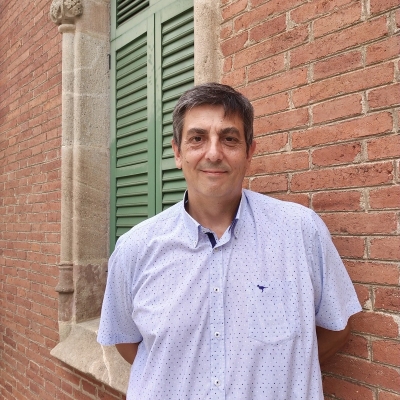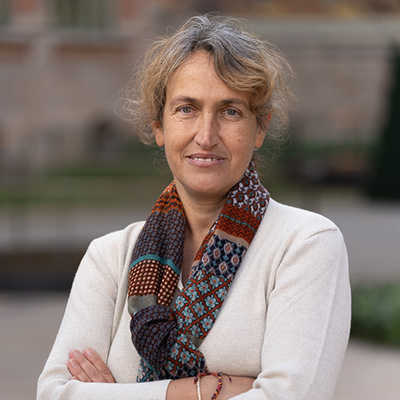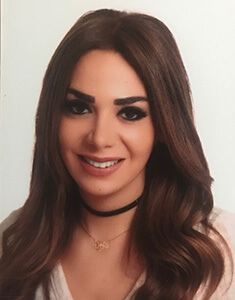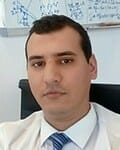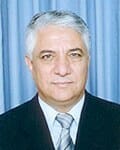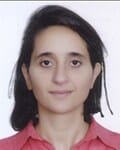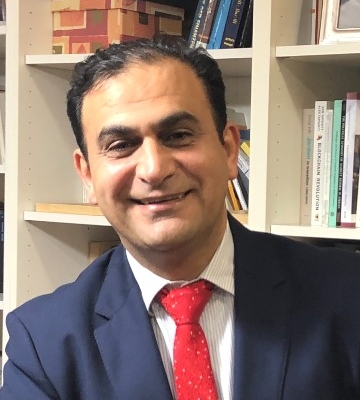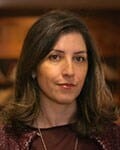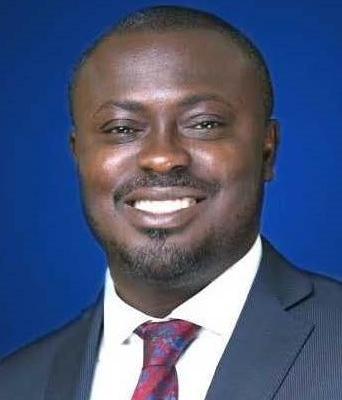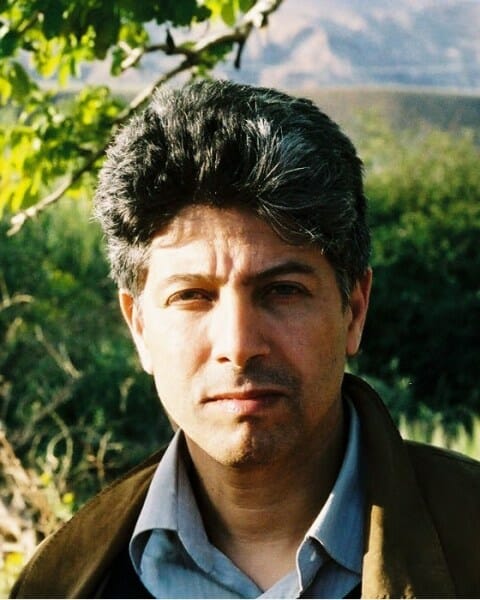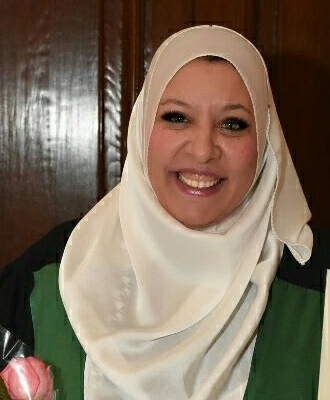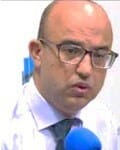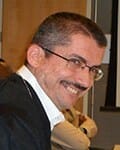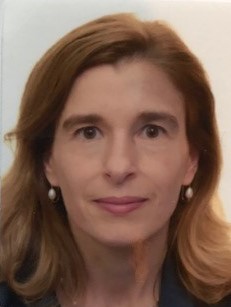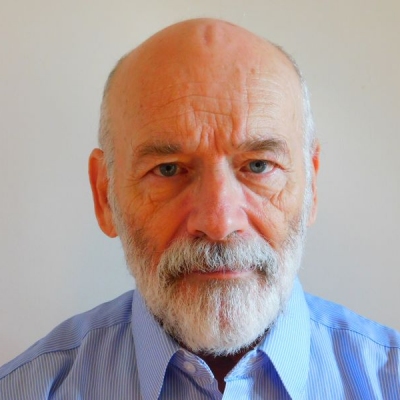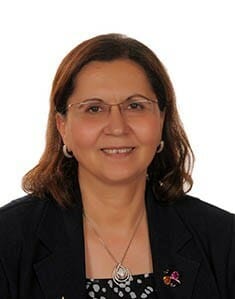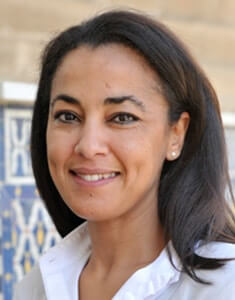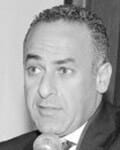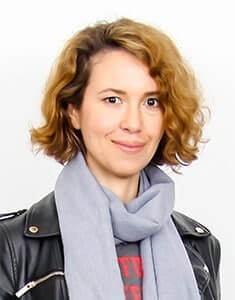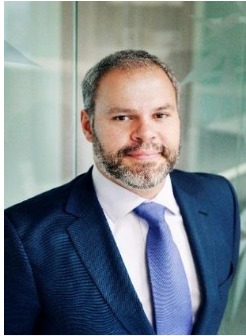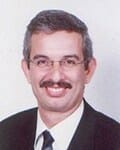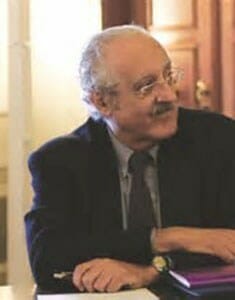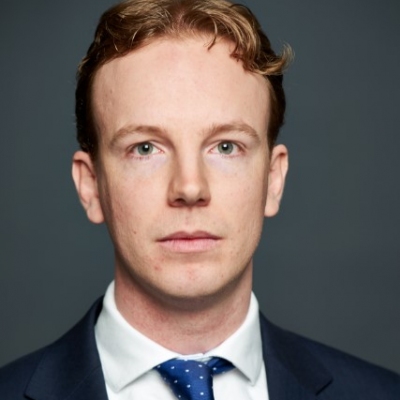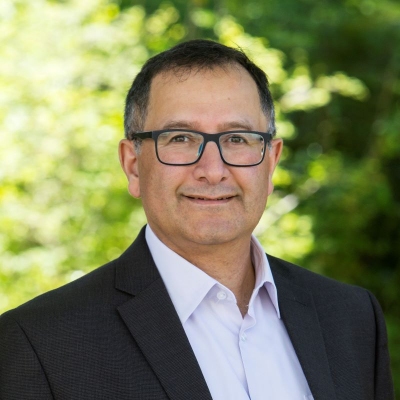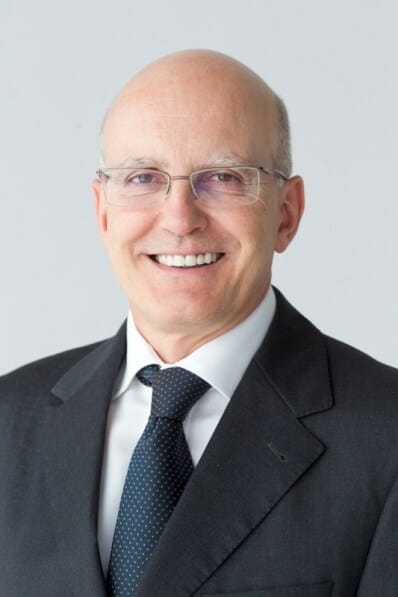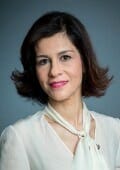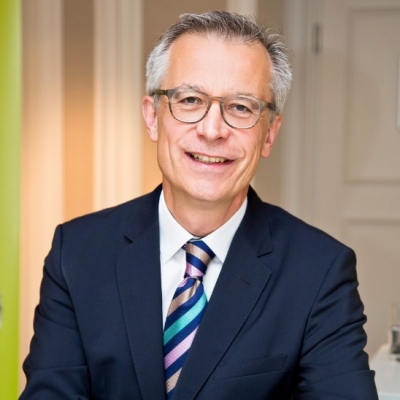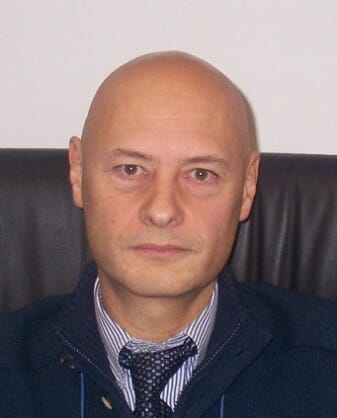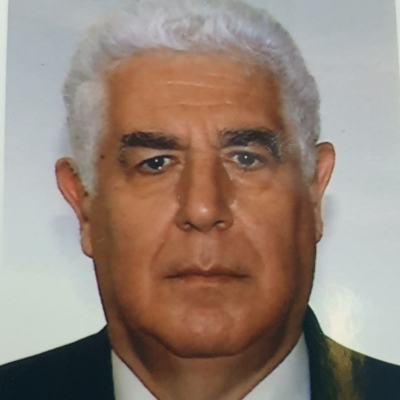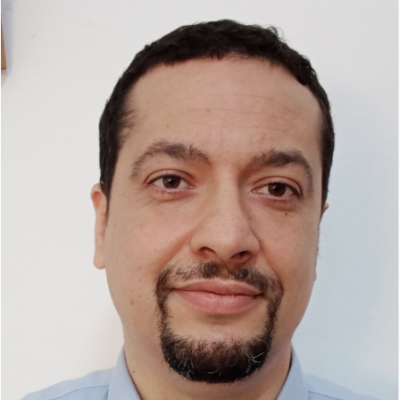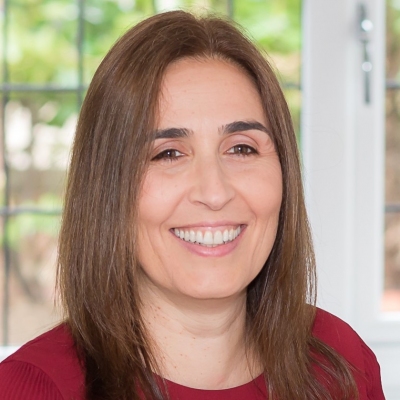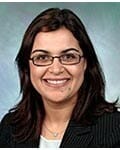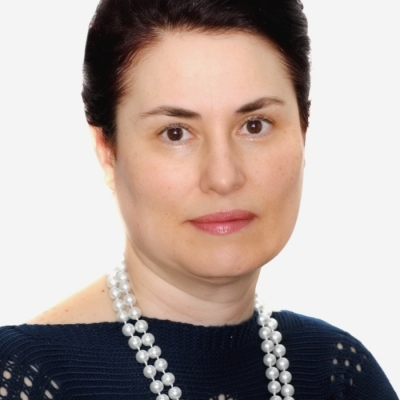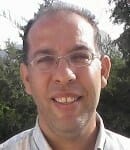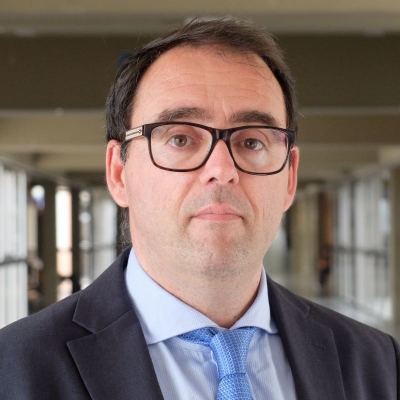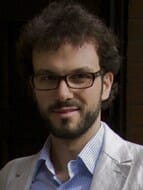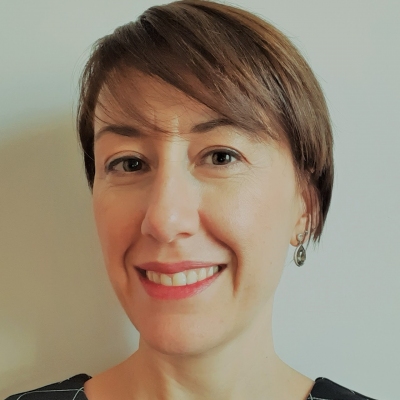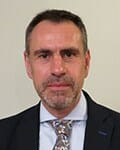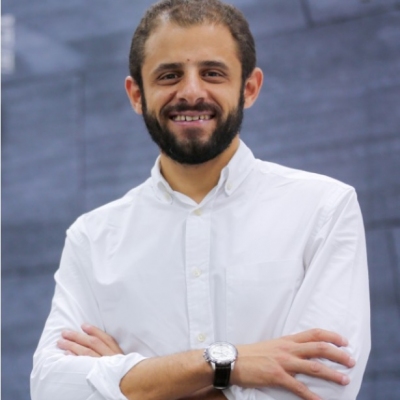Search Staff Member
Founder & President
Rym Ayadi – President and Founder of EMEA
Rym Ayadi is the Founder and President of the Euro – Mediterranean Economists Association (EMEA). She is Founder and Director of the Euro-Mediterranean and African Network for Economic Studies (EMANES). She is Senior Advisor at the Centre for European Policy Studies (CEPS); Professor at the Bayes Business School, City University of London and Member of the Centre for Banking Research (CBR); Chair of the European Banking Authority – Banking Stakeholders Group (EBA- BSG). She is also Associated Scholar at the Centre for Relationship Banking and Economics (CERBE) at LUMSA University in Rome. Rym Ayadi’s fields of expertise include inclusive and sustainable economic models, international financial systems, sustainable finance, financial markets and institutions, global financial regulation, governance and consumer protection, and socio-economic development and foresight in economies in transition. Her current research focuses on the redesign of a global stable, sustainable and inclusive financial system that better serves economic and societal long-term objectives and with a particular emphasis on the diversity of corporate and business models, private-public partnerships and financing models and the conditions for their success, SME financing and the role of financial markets to achieve developmental objectives and the impacts on business models in finance and role of financial regulation and resolution and impacts on incentives in the financial market. She also works on economies in transition, policy developments and foresight. Rym Ayadi is international academic expert in several international high-level academic and advisory Committees and Boards. She is Academic Member of the European Shadow Financial Regulatory Committee (ESFRC), a shadow academic group of professors of law, finance and economics working on international financial regulation and financial stability, the European Commission’s Financial Services Users Group (FSUG), the European Parliament – Economic and Financial Committee and Committee on Foreign Affairs (EP Think Tank), the Parliamentary Assembly of the Mediterranean (PAM) and the Union for the Mediterranean (UfM), and an invited expert in international organisations including OECD and IMF, among others. She is also member of Finance Watch (FW) a Brussels-based NGO that strives to make finance serve the society since its set-up. She is also the Founder and Co-chair of International Workshop on Financial System Architecture and Stability (IWFSAS), an Annual Conference that provides a forum for academic researchers, practitioners and policy makers to discuss current issues related to the structure and design of financial systems and their impact on macro-financial stability and sustainable and inclusive economic growth. Previously, 2013-2018, Rym served as Professor of International Business and Finance at the Department of International Business, as Director and Board Member of the Alphonse and Dorimène Desjardins Institute for Cooperatives, and Founding Director of the International Research Centre on Cooperative Finance (IRCCF) at HEC Montreal, Canada; as Senior Research Advisor at the Euro-Mediterranean University (EMUNI) (2015-2019) in Piran, Slovenia; and 2001-2013 as Senior Research Fellow and Head of Research of the Financial Institutions Unit at the Centre for European Policy Studies (CEPS), a policy think tank in Brussels. She served as an academic senior expert member of the European Insurance and Occupational Pensions Authority (EIOPA) Stakeholder Group (Between 2011 and 2013). She was the promoter and director of the Mediterranean Prospects Research Network (MEDPRO) an international research network for foresight analysis in the Euro-Mediterranean region (Between 2009 and 2013) funded by the Seventh Framework Program of the EU. She was also Vice President of the European Financial Inclusion Network (EFIN), a European network that promotes mutual learning on financial inclusion which currently part of Finance Watch. She authors several books and scholarly articles on her areas of expertise and is member of several editorial and scientific boards. Rym Ayadi holds a Ph.D. in Economics and Finance from University Paris Dauphine.
Executive Board
Cinzia Alcidi
Dr. Cinzia Alcidi is Senior Research Fellow and Head of the Economic Policy Unit at the Centre for European Policy Studies (CEPS) in Brussels and LUISS- School of European Political Economy- research fellow.Prior to joining CEPS, she worked at International Labour Office in Geneva and she taught International Economics at University of Perugia (Italy). Her research activity includes international economics, macroeconomics, central banking and EU governance.Since 2015 she is the coordinator of CEPS Academy Activities. She has experience in coordinating research projects and networks. She has published extensively on the economics and governance of the Euro area crisis and participates regularly in international conferences.She holds a Ph.D. degree in International Economics from the Graduate Institute of International and Development Studies, Geneva (Switzerland).
Executive Board
Pantelis Capros
Prof. Pantelis Capros heads the E3MLab of ICCS. He is a Professor of Energy Economics and Operation Research at the Department of Electrical and Computer Engineering of National Technical University of Athens. He has built and used a variety of large-scale mathematical models and has more than 20 years professional experience of consultancy in the domain of energy and economic policy.For the MEDPRO project, E3MLAB will use and apply the GEM-E3 general equilibrium model. In particular, the model version developed already for the integrated FP6 research project CIRCE studying impacts of climate change on the Mediterranean economic and ecological system.
Executive Board
Mariano Gomariz
Mariano is a corporate/commercial and a tax Lawyer with vast experience (+20 years) in private and company law and tax matters. He advises on many areas including M&A transactions, tax, corporate restructuring, Real Estate investments, family business, private wealth management & expatriation issues. He advised companies in several industries such as telecommunications, IT, manufacturing, food, automotive, aeronautical, Finance & Insurance, fashion, Real Estate, educational and research institutions.. He has founded a law and tax firm (UTN Tax & Legal) since 2019 that provides specialised services in corporate and commercial law, employment tax and accounting matters. Before that he worked in several law firms in Spain as a Partner. He holds an LLM in tax law from DePaul University in Chicago in the USA after graduating from University of Barcelona and Centro de Estudios Garrigues of Madrid in law and taxation. He contributes widely in specialised magazines on private and tax law and speaks regularly at conferences. Mariano speaks Spanish, Catalan, English and French.
Executive Board
Consuelo Varela Ortega
Professor of Agricultural and Natural Resource Economics. She is also member of the recently created Research Centre for the Management of Agricultural and Environmental Risk (CEIGRAM). She has been involved, during the past 25 years in research in Spanish, European Union and International networks in the fields of agricultural policy and the environment, water resources management and institutions. Professor Varela-Ortega is the country representative for Spain in the International Association of Agricultural Economists (IAAE) and has taken part in the scientific committee and advisory panels of several international institutions, such as the Global and National Food and Water System for the CGIAR Challenge Program on Water and Food and the CIRAD (International center for agricultural development research) in France.
Executive Board
Carlo Sessa
Carlo SESSA is Research Director and former President of ISIS – Institute of Studies for the Integration of Systems of Rome. Before joining ISIS in 1983, he has conducted research at NYU, where he worked with Nobel Prize winner Wassily Leontieff. He was the Coordinator of several EU research projects, in the 5th, 6th and 7th Framework Programmes, in the fields of transport, urban issues and environment. In this context, he organised several participatory foresight exercises, involving panels of experts and citizens.
Advisory Board
Roger Albinyana
Roger Albinyana is director of the Mediterranean Regional Policies and Human Development department at the European Institute of the Mediterranean (IEMed). He is also associate professor at the Faculty of Economics of the University of Barcelona where he teaches international economic policy. He holds a MA in Economic History from the University of Barcelona and the Autonomous University of Barcelona. He is also a board member at CIDOB, Barcelona Centre for International Affairs.From 2013 to 2016, he served as secretary general for Foreign and EU Affairs of the Government of Catalonia. During that period, he was also a member of the EU Committee of the Regions. From 2010 to 2013 he served as advisor and expert on private sector development at the Secretariat of Union for the Mediterranean.
Advisory Board
Raja Almarzoqi
Raja Almarzoqi is former IMF advisor. Faculty member in economics Division at Institute of Diplomatic Studies, and also, was adjunct professor at Thunderbird Global Business School and King Saud University. He has a teaching/lecturing experience of 16 years at (Institute of Diplomatic Studies; King Saud University; MIT; IMF; Thunderbird Global Business School) in several subjects in economics. He was a president of Gulf Monetary Council. In addition, Raja worked as a consultant to many government and private organizations (World Bank, ARAMCO, Ministry of Economics & Planning, Saudi Arabian General Investment Authority (SAGIA), Supreme Commission for Tourism, Cooperation Council for the Arab States of the Gulf (GCC) and KACST…etc). Also, he was a board member in several organizations and Funds. Mr.Almarzoqi is specialized in policy modeling for impact assessment and scenario analysis, Money and Banking, international finance, and Finance. He presented research papers at major international conferences and published papers in major Middle East journals. Mr. Almarzoqi holds a BA from King Saud University in economics, M.A. from University of Michigan, Ann Arbor in economics, and Ph.D. from Oklahoma State University, Stillwater in economics and finance.
Advisory Board
Harris Eyre
Harris Eyre MD PhD trained in clinical medicine and neuroscience. He is now Co-Founder of the PRODEO Institute which – in collaboration with the Organisation for Economic Co-operation and Development (OECD) and with support from Johnson & Johnson, PwC and the Milken Institute – seeks to incubate new approaches to brain-based investing, economics and policy. He is Senior Fellow for Brain Capital with the Meadows Mental Health Policy Institute. Harris maintains advisory or adjunct roles with the Global Brain Health Institute at the University of California San Francisco, the Davos Alzheimer’s Collaborative, Brain Health Nexus, Baylor College of Medicine, the University of Texas Health Sciences Center at Houston and Deakin University. He has authored over 120 book chapters and papers, for Lancet Neurology, World Psychiatry and The RSA Journal. He is also lead editor of “Convergence Mental Health: A Transdisciplinary Approach to Innovation”, recently published by Oxford University Press.
Advisory Board
Sergio Arzeni
Sergio Arzeni is the President of INSME a Rome-based International Network for SMEs promoted by the OECD and the Italian Ministry of Economic Development. He is also Senior Advisor of the Friends of Europe, a Brussels based Think-Thank focusing on issues related to the functioning and perspectives of the European Union. Also: Executive Member, GCEL – Global Coalition for Efficient Logistics, a Geneva-based public-private partnership building a global digital platform to facilitate international trade among SMEs. Member of the Advisory Board of SR-M, the Research Centre on the Mediterranean of Intesa San Paolo Bank, in Naples. Member of the Editorial Board of the Journal of Entrepreneurship and Member of the Editorial Board of the Journal of Entrepreneurship and Innovation in Emerging Economies (published by Sage Publishing in London, New York and New Delhi). Chief Economist, IREFI, Institut des Relations Économiques France-Italie, Paris- Rome. Board member GEI – Group of Industrial Economists, Milan. For 33 years at the OECD (Organization for Economic Cooperation and Development) in Paris, created and led the OECD Centre on Entrepreneurship, Small and Medium- sized Enterprises (SMEs), Local Economic and Employment Development and Tourism. In the meantime Has been also: Visiting Professor at the Business School of the University of Essex, UK; President of the Scientific Committee for Research and Innovation of the Piedmont Region, in Turin; • Member of the Strategic Committee of the Banque Publique d’Investissement (BPI France) in Paris; • Member of the Scientific Committee of Formaper, Milan Chamber of Commerce Agency on Skills for Entrepreneurship and Management in SMEs; As economic journalist contributed to several Italian and international newspapers. Before joining the OECD as a Senior Economist, he served as a policy analyst both in the European Commission in Brussels, in the Italian Parliament and the Italian Trade Unions (CISL) national economic research department in Rome, was member of the Council for Southern Italy of the National Research Center (CNR) and was Co-founder of the Italy-Japan friendship Association. He holds First Class Honors Degree in Political Science from the University of Rome and specialized in Industrial Economics at the International University Institute of Luxembourg and in International Economic Relations at the Brookings Institution in Washington D.C., USA.
Advisory Board
Emilios Avgouleas
A graduate of the LSE in law and finance (LLM, PhD) Professor Emilios Avgouleas holds the International Banking Law and Finance Chair at the University of Edinburgh. He is the founding director of the interdisciplinary LLM programme in international banking law and finance, and a senior research fellow of the Edinburgh University blockchain technology lab, School of Informatics. He is a senior fellow and visiting professor at the School of European Political Economy, Luiss Guido Carli University and also an invited Global Professor at Tsinghua University (2021). He currently serves as an elected member (2020-2024) of the European Securities and Markets Group, the Stakeholder Group of the European Securities and Markets Authority (ESMA). Throughout his academic career he has held many prestigious visiting teaching and research posts. He has been a distinguished visiting professor the National University of Singapore, Hong Kong University, Duke Law School, the China-EU School of Law and the Athens University of Economics and Business. He has also been a senior visiting research fellow at Yale Law School (2016), Duke Law School (2009), and Harvard Law School (2016). He has also served for 2 terms (2015-2020) as an elected member of the European Banking Authority’s Stakeholder Group (EBA-BSG) in the section “top-ranking academics”. He served for 2 terms (1/2016-1/2020) as an independent member of the Eurogroup Selection Panel (Supervisory Board) for the Hellenic Financial Stability Fund, the major shareholder of the Greek banking sector. He sits on the editorial board of seven well-known scientific journals including the Oxford University Press Journal of Financial Regulation. In addition, he is a member of the sovereign debt group of the Financial Markets Law Committee (operating under the auspices of the Bank of England), a member of the Royal Economic Society, and a member of the Mocomila, the ILA committee of the world leading monetary and finance lawyers.
Advisory Board
Bertrand Candelon
Bertrand Candelon, French/Belgian, is a professor of finance and head of research of Louvain Finance at Université Catholique de Louvain. He is also scientific director of research initiative “Risk Management and Investment Strategies” at Institut Louis Bachelier (Paris). He earned a Ph.D. from Université Catholique de Louvain in 1998, was a Pierre and Marie Curie postdoctoral fellow at Humboldt-Universität zu Berlin and held the International Monetary Economics chair at University Maastricht from 2001 to 2014, where he is still an honorary professor. He has been invited to lecture in numerous universities including the University of Orleans, Macquarie University in Sydney and City University of Hong Kong and served as a consultant for the European Commission and for the Institute for Capacity Development at the IMF. His research topic covers a large spectrum in macro-econometrics, e.g. macroeconomics (money demand, fiscal policy, raw commodities) and international finance (financial crisis early warning systems, the financial markets co-movements). He has published in top tier journals as Journal of Econometrics, Journal of Business Economics and statistics and International Economic Review.
Advisory Board
Ralph Chami
Ralph Chami is currently Assistant Director in the Institute for Capacity Development (ICD), International Monetary Fund, where he oversaw the development and implementation of the internal economics training program for all IMF economists as well as the revamping of the Institute’s external training program for officials from member countries. Most recently, he was Assistant Director and Division Chief in the Middle East and Central Asia Department where he oversaw surveillance and program work on fragile states: Egypt, Libya, Somalia, Sudan, South Sudan, and Yemen, and was Mission Chief for Libya and Somalia. He is the recipient of the 2014 IMF Operational Excellence Award for his work on Libya. Previously, he was the Chief of the Regional Studies Division, where he oversaw regional surveillance of 32 countries in the Middle East, North Africa and Central Asia regions, and the production of the Regional Economic Outlook. Prior to that, he was the Chief of the Middle Eastern Division of the IMF Institute where he oversaw capacity development in that region. He joined the IMF in 1999. From 1991 till 1999, he was on the faculty of Finance in the Department of Finance, University of Notre Dame in Indiana. He also served as a consultant to the World Bank, and to the private sector in the US. Ralph Chami has a BS from the American University of Beirut, an MBA in Finance and Statistics from the University of Kansas, and a Ph.D. in Economics from the Johns Hopkins University. His areas of specialization are: banking regulation and supervision, financial markets, and remittances. His hobbies include music and yoga. Ralph was a semi- professional guitarist for over 40 years https://www.youtube.com/user/MusicRC99.
Advisory Board
Giovanni Ferri
Professor Giovanni Ferri received his BSc in economics from the University of Siena and his Ph.D. in Economics from New York University. Since 2012 he is full professor of economics at the Department of Law, Economics, Politics & Modern Languages at LUMSA University in Rome where, from 2014 to 2018, he was Deputy Rector for Academic Affairs and chaired the Quality Assurance and Library Committees. He also co-founded and chairs the Center for Relationship Banking & Economics (https://sites.google.com/site/cerbelumsa/home) to foster research for a better understanding of relational goods to promote society wellbeing. He founded and chairs the Master in Management of Sustainable Development Goals (http://mastermsdg.lumsa.it). He previously served at the University of Bari, World Bank, Banca d’Italia. He visited: ADB Institute, HKMA, NBER, Princeton University, Tokyo University. He consulted for EU Commission/Parliament, Italy’s Treasury and partook in EBA’s Banking Stakeholder Group. He is editor-in-chief of Economic Notes and led (or consulted for) policy/research projects in many countries, including Albania, China, Indonesia, Korea, Malaysia, Philippines, Serbia, Thailand, Turkey, Vietnam. He has published extensively on/for several world recognized journals/publishers on various fields: financial shocks, banking structure, rating agencies, corporate governance, migration, firm internationalization, Chinese economy, family firms, inequality, sustainability. To support the sustainable transition by providing innovative consulting and knowledge building to both public and private sector organizations through an ethically sound business model, he has co-founded (and is scientific chair) of Sustinentes (https://sustinentes.it/).
Advisory Board
Ekkehard Ernst
Ekkehard Ernst is Chief of the Macroeconomic Policies and Jobs unit at the International Labour Organization, where he analyses monetary, fiscal and trade policies and their impact on global employment, social and wage developments. His current focus lies on understanding trends in the Future of Work, where he develops scenarios on how technological innovations, demographic shifts and political vagaries might unfold in the world of work. His work is widely published in both policy reports and academic studies. His most recent work discusses different policy options to address the socio-economic crisis resulting from the Covid‑19 pandemic. He has also researched on the implications of artificial intelligence, robots and blockchain applications on the future of job, inequality and the transition to a sustainable society. In 2017, Ekkehard co-founded Geneva Macro Labs to offer a platform to identify, develop and implement solutions to address global challenges and existential risks. Together with his team he brings together international thought leaders and practitioners to promote and advance the United Nations Sustainable Development Agenda. Previously, he worked at the Organization for Economic Cooperation and Development (OECD) and the European Central Bank. Ekkehard Ernst has studied in Mannheim, Saarbrücken and Paris and holds a PhD from the École des Hautes Études en Sciences Sociales. He became an IZA Policy Fellow in July 2011.
Advisory Board
María Helena de Felipe
Born in Madrid with Spanish –Finnish Nationality Permanent residence in Barcelona-Spain Lawyer, specializing in Corporate Labor Law. CURRENT INSTITUTIONAL RESPONSIBILITIES Active member of the EUROPEAN ECONOMIC SOCIAL COMMITTEE, and member of the SOC, REX and Chair of the EUROMED follow up Committee (E.E.S.C)-October 2015-present. (www.eesc.europe.eu). Vice-President of SMEunited (Confederation of European Crafts and SMEs)- Dec2014-present. (www.smeunited.com) and President of the Committee of Legal Affairs. June 2015-present. Vice-President of CEPYME (Confederation of Spanish SMEs) September 2014-present. (www.cepyme.es). President of FEPIME-CATALUNYA (Catalonian Federation of SMEs) July 2014-present. (www.fepime.cat) Vice-President of FOMENT DEL TREBALL (Catalonian Employers Confederation) July 2014-present. (www.foment.com). Member of the Board of C.E.O.E (Spanish Employers Confederation). Oct.2014-present. (www.ceoe.es.) Set up and current President AFAEMME in 2002 (Association of Federations and Associations of Women Entrepreneurs from the Mediterranean) which currently has 63 Member Associations of Businesswomen from 23 Mediterranean countries (Albania, Algeria, Bosnia-Herzegovina, Croatia, Cyprus, Egypt, Slovenia, Spain, France, Greece, Italy, Jordan, Lebanon ,Libya, Malta, Monaco, Montenegro, Morocco, Palestine, Syria, Tunisia, Turkey).(www.afaemme.org/boardofdirectors.php). Co-President of Women Commission in ASCAME (Federation of Mediterranean Chambers of Commerce) -November 2019-present and Member of the Advisory Board of ASCAME October 2014-present CURRENT PROFESIONAL RESPONSIBILITIES Co-founder of FES BUSINESS INTERNATIONAL CONSULTING SL, International Business Consultancy, providing corporate legal services for SMEs companies and consultancy specialized in project management in Business Gender Equality and Opportunities addressed to SMEs, organizations and public institutions at regional, national and Euro- Mediterranean level ,Headquarter in Barcelona. March 1991-present. Linkedin in/mariahelenadefelipe Facebook: in/mariahelenadefelipe Tweeter: @mhelenadefelipe Blog: mariahelenadefelipe.wordpress.com TF: 932.005.851 hdefelipe@afaemme.org
Advisory Board
Senen Florensa
Currently the President of IEMed (European Institute of the Mediterranean). A diplomat and ambassador, he holds a degree in Economic Science (1971) and in Law (1972) from the Universitat de Barcelona. He studied for his doctorate in Economics at the Université Paris I Panthéon-Sorbonne (1973-1974); as a Fullbright scholarship holder at New York University, Ph. D. Program (1974-1976), and at the Universidad Complutensede Madrid, where he presented his doctoral thesis in 1979. Diploma in International Studies from the Diplomatic School of the Spanish Ministry of Foreign Affairs and Cooperation. He has also been Director of Studies at the Diplomatic School of the Spanish Ministry of Foreign Affairs and Cooperation and Professor of International Economics and Development at the Universidad Complutense de Madrid.
Advisory Board
Mona Toema El Garf
Dr. ElGarf has more than 30 years of professional experience working with governments, private sector, NGOs as well as several international organizations, on areas related to trade facilitation, trade policy & promotion, trade agreements as well as competition regulations & policies. Dr. El Garf has been serving as the Chairman of the Egyptian Competition Authority (ECA) during the period from May 2012-May 2018. Prior to her role as the Chairman of the ECA, Dr. ElGarf has served – for six years – as a Lead Economist & Trade Agreements Advisor at the Egyptian Ministry of Trade & Industry. Dr Mona El Garf was a board member in different authorities and committees of which ; Consulting Committee on Anti- Dumping Duties, Ministry of Trade &Industry, May 2012 – May 2018 (Egyptera), Egypt’s Electricity regulations Authority, Ministry of Electricity, 2016 – May 2018 Supreme Council for Media Regulations, 2017 – May 2018 Egypt Gas regulations Authority, Ministry of Petroleum, February 2018 -May 2018. El Garf has been selected as one of the Top 50 Influential Women in Egypt, 2015. Moreover, she was selected by Forbes Magazine, for two consecutive years, as one of the Top 20 influential women in the Middle East, 2016&2017.
Advisory Board
Hakim Ben Hammouda
Hakim Ben Hammouda was the Minister of economy and finance of Tunisia. Before being appointed Minister in January 2014, he has performed senior managerial positions with various international organisations. He was appointed special adviser of the President of the African Development Bank from 2011 to 2014, Director of the Institute of Training and Technical Cooperation with the World Trade Organization (2008-2011). Previously, he performed various directors’ position with the United Nations Economic Commission for Africa, as director of sub regional office in Central Africa and then director of the Trade and regional integration division and Chief Economist. For many years, he has dealt with Africa’s development and has contributed to the implementation of major programme of actions such as NEPAD. During his career, he has directly supervised key continental publications such as Economic Report on Africa, African Economic Outlook (Afdb, OECD and UN), Assessing regional Integration in Africa Hakim Ben Hammouda has a PhD in international economics and teaches regularly economic development with several universities. He is the author of over 20 books, several articles in international scientific journals in the field of international trade and economic development and weekly chronicles in different newspapers.
Advisory Board
Moubarack Lô
Former Special Advisor to the Prime Minister, Senegal. President of the Emergence Institute, specializing in economic and statistical studies and strategic planning. He is also Director General of the Economic Foresight Bureau. Previously, he was Deputy Director in the Cabinet of Macky Sall, President of Senegal. He also served as an economic advisor to several Prime Ministers. He is an expert for the UN, the African Development Bank, the World Bank and the African Union. He has served as associate lecturer at the National School of Administration of Senegal and the University Gaston Berger of St. Louis.
Advisory Board
Jorgen Mortensen
Jørgen Mortensen was Associate Senior Research Fellow at the Brussels-based Centre for European Policy Studies (CEPS). He graduated in economics and statistics from the University in Copenhagen in 1963. After a brief period as administrator at the Central Statistical Office he took up a post as junior economist at the Organisation for Economic Co-operation and Development (OECD) in Paris. From 1973 to 1988 he was a senior economist (Head of Division) in the Directorate-General for Economic and Financial Affairs of the European Commission. Since 1989 he has been free-lance researcher, mainly associated with CEPS. Jørgen Mortensen has written or edited numerous research reports and books on issues as economic and social cohesion in the European Union, the financing of retirement provision, portability of pension rights, the role of intellectual capital in the economy, intangibles in business accounting and, more recently, on various aspects of demographic ageing and its consequences for labour markets, retirement and health care provision.
Advisory Board
Chukwumerije Okereke
Professor Chukwumerije Okereke is the Director of the Centre for Climate Change and Development at Alex Ekwueme Federal University Ndufu-Alike and a Visiting Professor at the Universities of Reading and Oxford, UK respectively. He is a globally recognized leading scholar on global climate governance and international development with expertise in climate justice, national green growth transition in Africa, climate adaptation and business climate strategies. Professor Okereke was previously the Co-Director of the Center for Climate and Justice and Co-Director of the Reading University Leverhulme Doctoral Scholarship Programme. He was also Director of the Center for Climate Change and Development at the Smith School of Enterprise and the Environment at the University of Oxford. Over the last 20 years, Professor Okereke has maintained an extensive high-impact engagement with national governments, businesses, and NGOs in Africa and led on several high-profile international projects on climate change policy, mainstreaming, and green economy transition in Africa including the UNDP funded Africa Adaptation Initiative (AAI) commissioned by the Committee of African Heads of State on Climate Change (CAHOSCC), the Analysis of the Adaptation Components in Africa’s Nationally Determined Contribution (NDCs) commissioned by the African Development Bank and and the Rwandan Green Growth and Climate Resilience Project, which was the first-ever national low-carbon plan in Africa. Professor Okereke is the Coordinating Lead Author of the UN’s Intergovernmental Panel on Climate Change (IPCC) Sixth Assessment Report. He has served as Lead Author on other major global scientific assessment projects including the IPCC Special Report on 1.5degree global warming and the Fifth Assessment Report of the IPCC; the United Nations Environment Programme’s Urbanization, Biodiversity, and Ecosystem Services Assessment. Professor Okereke is a member of the Steering Committee of the Earths Systems Governance Project and a leading member of the Global Earth Commission’s Safe and Just Transformation Working Group. Professor Okereke is a member of the editorial board of several highly reputed journals in the field including, Global Environmental Politics, Business and Sustainable Development, Earth Systems Governance, and International Studies Review. Professor Okereke has published widely in the field, given a countless number of keynote speeches, and been interviewed by leading media houses in the world including BBC News, BBC World Services, France24, China Global Television Network, Channels TV, AriseTV, and several others.
Advisory Board
Fathallah Sijilmassi
Fathallah Sijilmassi was appointed Secretary General of the Union for the Mediterranean on 1 March, 2012. He was re-elected Secretary General of the Union for the Mediterranean on December 4, 2014. A career Diplomat for the Moroccan Government, he specialises in the field of economic international relations, in particular with regard to Euro-Mediterranean issues. He started working in the banking sector as representative of the Banque Commerciale du Maroc in Milan (Italy). His career within the Moroccan administration was then marked by his active role in the negotiations of free trade agreements with the European Union, the United States, and several Arab and African countries. From 1999 onwards, he has held senior positions within the Moroccan Ministry of Foreign Affairs: Director of Multilateral Cooperation (1999-2001), Director of European Affairs and Ambassador to the Barcelona Euro-Mediterranean Process (2001-2003). In 2003, he was appointed Ambassador to the European Union (2003-2004) and later to France (2005-2009). In 2009, he becomes CEO of the Moroccan Investment Development Agency, leading its launch and subsequent growth. Fathallah Sijilmassi is an officer of the Légion d´honneur and grand officer in the Ordre National du Mérite of the Republic of France.He is a graduate in Political Science, holds a PhD in Economics and speaks five languages: Arabic, French, English, Italian and Spanish. He is married with two children.
Advisory Board
Nermine El-Tahri
Nermine El-Tahri, joined Egypt’s Ministry of International Cooperation (MoIC) in September 2020 as Assistant Minister for micro, small, medium enterprises (MSMEs). Before MoIC, since May 2016, Ms. El Tahri was leading the Central Bank of Egypt’s MSME’s initiative with private & public sector banks, local and international organizations, governmental entities and ministries. Nermine returned to Egypt from the United Kingdom in 2007, shortly thereafter, she joined Banque du Caire as General Manager of Business Development. During her tenure she has successfully contributed to the banks unsurpassed portfolio growth and profitability by revitalizing and launching new pioneering products, optimizing the existing infrastructure, maximizing employee effectiveness and enhancing customer satisfaction. The previous decade, Nermine worked for American Express in the United Kingdom as Vice President Franchise Markets responsible for Business Development across the EMEA for the Global Network Services group, where she managed Joint Venture partnerships in Switzerland, Belgium and the Middle East, Independent Operator relationships in Denmark, Norway, Turkey, Greece and South Africa, also, Network Partnerships in France and Ireland. During 1990-1995 Nermine worked for Citibank Canada, from 1986 – 1990 the Financial and Marketing Analyst for Xerox Egypt and 1983-1986 Financial Analyst for The Egyptian Financial Group (EFG) in Egypt. Throughout her career Ms. El Tahri‘s achievements have consistently been appreciated and recognized. She is the recipient of numerous diverse Global & European Awards by American Express for Business Development & Transformation, Outstanding Performance, Innovation and Customer Commitment. Nermine was granted the CitiTops Excellence Award in 1991 for Citibank Canada and Excellence Award in 1986 from Xerox Egypt. Nermine holds a BA in accounting and business administration from the Cairo University, equated from the University of Toronto.
Advisory Board
Sübidey Togan
Sübidey Togan is Professor of Economics and the Director of the Centre for International Economics at Bilkent University. He has received his Ph.D. in Economics from the Johns Hopkins University in Baltimore. Prior to joining Bilkent University he taught at Texas A&M University, Clarkson University and Middle East Technical University. His publications include Foreign Trade Regime and Trade Liberalization in Turkey during the 1980’s published in 1994 by Avebury, The Economy of Turkey since Liberalization published in 1996 by Macmillan Press Ltd (co-editor V. N. Balasubramanyam), Turkey and Central and Eastern European Countries in Transition: Towards Membership of the EU published by Palgrave Macmillan Ltd. in 2001 (co-editor V.N. Balasubramanyam), Turkey: Economic Reform & Accession to the European Union published by the World Bank and Centre for Economic Policy Research (CEPR) in 2005 (co-editor B. Hoekman), “Macroeconomic Policies for EU Accession” published by Edward Elgar Publishing in 2007 (co-editors E. Ba?ç? ve J. von Hagen), and “Economic Liberalization and Turkey” published by Routledge in 2010. His area of interest is International Economics.
Advisory Board
Benoît Tremblay
Benoît Tremblay is Honorary Professor at HEC Montréal, where he teaches since 1976. He holds an MBA from HEC Montréal and a Doctorate from the École Pratique des Hautes Études, Paris. One of the founders of the Study Centre for the Management of Co-operatives in 1975, he has been active as a researcher for many years and has served on the board of different cooperative organisations. In 1984, he was appointed Deputy Minister responsible for cooperative development in Quebec. He has been active in public life as a Member of the City of Montreal Council and a Member of the Executive Committee of the Montreal Urban Community and Finance and Economic Development Commission’s President. In 1988, he has been elected Member of the Canadian Federal Parliament and nominated as Parliamentary Secretary for Industry, Science and Technology.Back to HEC Montréal in 1997, he focused his research on two main topics: the manager’s craft and the development of the financial services cooperatives in the world. From 2001 to 2010, he was Director of the Desjardins Centre for Studies in Management of Financial Services Cooperatives. His research has led to the creation of the International Observatory on Financial Services Cooperatives, which includes a Database on the Institutions, a Virtual Library and a Simulation.
Team
Rob Attree
In a career spanning 30 years as a professionally qualified award winning newspaper journalist, PR writer and copyeditor, Rob has extensive experience in producing or fine-tuning content for both online and offline platforms. Commercially, Rob has assisted a wide-range of private and public sector organisations and has worked extensively with the current team on the editing of numerous academic papers and the associated preparation of media-related material.
Team
Giovanni Barci
Giovanni holds a BSc in International Studies (University of Trento), a MSc in Economic Policy (Utrecht University) and a Diploma in European Affairs (Italian Institute for International Political Studies). He gained experience working for the Centre for European Policy Studies (CEPS), a leading Brussels-based think tank, where he conducted research on financial regulation, credit markets and EU budgetary policies. Giovanni is also currently collaborating with the Economics Department of the European Investment Bank, working on green finance. His main research interests include macroeconomics, monetary policy, EMU, financial markets. At EMEA, he is engaged in research on socio-economic development in the Euro-Mediterranean and Africa.
Team
Nektar Baziotis
Nektar is a Founder and Entrepreneur, with more than 20 years experience in International Business Development, IT Project Management, IT Business Consulting, E-Learning, and Artificial Intelligence. Successfully delivered IT products and services for the UN, European Commission, European Parliament, organizations, companies, and startups in several countries. With formal education in Maths (AUTH), International Business (Wharton), MBA (Sheffield) and AI (MIT). Started his career in 1998 and promoted after internship to team leader, with a long experience in Project Management and Business Consulting in the area of IT, web and apps. Co-Founder of Apogee Information Systems in 2005 with the main focus of websites, custom web applications, and e-learning. He has managed and successfully delivered to various institutes and organizations, several projects and products in the EU countries and the USA, for public and private sector partners and clients. Previously, he has been the director, team leader and project manager in international companies as well as for EU’s governmental agencies. Strong communicator and dealing successfully with challenges. Researching cutting-edge technologies and methods on E-Learning, AI, and VR.
Team
Sandra Challita
Sandra is a faculty member at ESDES Business School in Lyon. She is also an associate researcher at the International Research Centre on Cooperative Finance (IRCCF) of HEC Montréal, at the University of Montpellier France, Montpellier Research in Management and “Labex entreprendre” Units. She received her Ph.D. in Finance at the University of Montpellier. Her thesis adopts a comparative approach of strategies and performances of cooperatives and investor owned firms in different fields. She adopts an interdisciplinary vision within her research. Sandra has presented her work during international academic conferences and has published and is in publication process of scientific articles in peer review journals. Sandra current research focuses on financial performance and risk of different types of financial institutions. Sandra also holds a master’s degree in finance (104) from Paris Dauphine University and a Bachelor degree in Management from Saint Joseph’s University Beirut. She speaks Arabic, French and English.In EMNES, she contributes to the research on finance, financial inclusion and financial development.
Team
George Christopoulos
George specializes in intelligence and communications strategy. He has over 20 years of experience as a geostrategic intelligence analyst, and communications and marketing manager, in various companies and organizations. He currently holds the position of Communication Officer at the Euro-Mediterranean Economists Association (EMEA), an independent think tank and forum for debate on the political and socio-economic reforms in the South and the East Mediterranean, consisting of over 60 expert researchers from 12 countries. He is responsible for intelligence and reporting of important socio-economic developments, dissemination of deliverables and social media communication. George also serves as Marketing Director of Apogee Information Systems, an innovative IT company specializing in Content Management Systems, e-learning Applications, and Human Resources Management. In the past, George worked as a senior consultant on geostrategic intelligence, communication, and crisis management in a UK based company. He was responsible for threat-monitoring, corporate intelligence, competition monitoring, public opinion and health issues monitor, political trends and actors monitor, general communications and positioning strategy for large corporations and organizations. He has participated to EU IT projects such as the OpenTEA e-learning platform, the European Observatory for Sustainable Agriculture – OPERA and WP7 NOMAD. He has also worked in the energy sector, specializing in business intelligence and marketing of renewable energy projects, and as Marketing Manager in the IT sector, specializing in Document and Knowledge Management. George studied Business Administration – Marketing at the University of Bath.
Team
Maria Ruiz de Cossío
Maria Ruiz de Cossío holds a degree in International Business from the University of Barcelona. Since 2017, she has participated in the management of multiple international projects, initiatives and events covering different parts of the life sciences and healthcare value chain in Catalonia and internationally. Maria joins the team to work as Project Officer and will contribute to EMEA’s activities with her transversal experience with legal, technical, financial, reporting and communication aspects of EU project management.
Team
Doriana Cucinelli
Doriana Cucinelli is Research Fellow and Adjunct Professor of Financial Intermediaries at University of Milano Bicocca, Italy. She is also SDA Fellow in Banking and Insurance at SDA Bocconi School of Management and associate researcher at the International Research Centre on Cooperative Finance (IRCCF) of HEC Montréal. Her main research interests are risk management in banking, bank business models, financial education and financial behavior. Doriana is author of national and international publications and has presented at many national and international conferences. She holds a Ph.D. in Banking and Finance at University of Roma Tor Vergata and a Laurea cum laude in Finance and Risk Management at University of Parma. She was visiting fellow at Cass Business School in 2017.
Team
Tânia Duarte
Tânia Duarte is an Independent Sustainable Finance Consultant and the Lead Researcher of the CBR Conduct Costs Project. She was co-founder of the CCP Research Foundation. Her main research interests include sustainable finance, conduct risk management and responsible investment and banking. Tânia is co-author of international publications on conduct risk and culture on banking, and she is also co-author of the book “The Financial Sector and the Sustainable Growth – The new finance for the XXI century”. She holds an MBA in Finance at Porto Business School and a post-graduation degree in Sustainable Development. As a member of the CFA Society of UK, she holds an Investment Management Certificate.
Team
Cynthia Echave
Cynthia Echave is an architect & urban planner specialized in urban ecology. She possesses a Doctor degree in Energy and Environment by Polytechnic University of Catalonia. Its professional career is characterized by an active participation in strategic projects under an ecosystemic criterion. Her professional profile could be defined close to R&D, working on the development of creative and innovative tools, methodologies and strategies for urban sustainability. Knowledge transfer comes through its application at integral projects in coordination with local authorities, mainly related to sustainable urban mobility, public space and urban livability, green infrastructure, energy and urban metabolism. She is Senior Researcher at EMEA in charge of capitalisation projects involving research around sustainability, energy transition and environmental challenges in the Mediterranean and Africa.
Team
Yeganeh Forouheshfar
Yeganeh Forouheshfar, is junior economist and a researcher at EMEA, she holds a PhD in economics from Université Paris-Dauphine. Her thesis is entitled “Financial sector development, economic growth and demography in MENA region”. Her research interests are financial markets, entrepreneurship, digitalization and demographic transition. She also holds a Master’s degree in International Economics from Université Paris-Dauphine and a Master’s in applied mathematics jointly from Pierre-and-Marie-Curie University and Ecole Polytechnique. Yeganeh has published in peer review journals and is currently working on several research projects. In addition to her research and teaching activities she is also involved in the organization of an annual conference on pension, insurance and savings.
Team
Alanna Irving
Alanna Irving holds a Bachelors degree in Classics from the University of Cambridge, and a Masters in International Relations from the Institut Barcelona d’Estudis Internacionals. Her professional experience ranges from local government and the public housing sector in the UK to international governmental organisations. She joins the EMEA team to support the implementation of projects and communication and dissemination activities.
Team
Walid Mathlouthi
Walid is a Senior Data Scientist Consultant. He holds a Ph.D. in Data Science from HEC Montreal. He was researcher at the International Research Centre on Cooperative Finance (IRCCF) at HEC Montreal & a Senior Consultant at Deloitte Canada. He is an expert in Python, R, and SAS, and he has a deep knowledge of Machine Learning and Applied Statistics.
Team
Xavier Mallofré Pujadó
Xavier Mallofré Pujadó is EMEA Financial Officer. He is Associate Professor at the Faculty of Economics and Business of the University of Barcelona since 2008. He has extensive professional experience as an economic, financial and accounting advising national and international companies and law and accounting firms. Xavier has a degree in Economics and Business Sciences from the University of Barcelona, and a Master’s degree in Financial Management from CEF.
Team
Sara Ronco
Ms Ronco has over three years of experience in performing qualitative and quantitative research which she gained during several missions undertaken abroad, mostly as volunteering activities (i.e. Kenya, Costa Rica, Italy). She has a BA in International Relations from the University of Turin and a master’s degree in Development Economics from the University of Florence. In 2017 she won an extra-EU competitive grant awarded by the University of Florence for a four-month study period at the University of Costa Rica. There, she collaborated with the academic multidisciplinary program CadenAgro in a project investigating the economic and social role of some typical national staple food compared to the imported ones. Recently she has been involved in data collection and editing activities of the IEMed, in the Euro-Mediterranean Policies and EuroMeSCO department, and she has relevant experience in supporting international projects. Her main research interests are: Development Economics, International Trade and Sustainable Global Value Chains, Food Security and Agricultural Economics, Poverty and Inequality.
Team
Anna Santamaria
Anna Santamaria has more than 25 years of experience in management in the private sector. She holds a Bachelor’s degree and master in business administration from University Ramon Liull in Spain. In EMEA, Anna is responsible of the office administrative management.
Team
Mais Sha’ban
Mais Sha’ban is an Assistant Professor of Banking and Finance at Al-Zaytoonah University of Jordan. Her research interests include bank stability, bank performance, financial inclusion, and sustainable finance. She holds a PhD in Finance (University of Essex, United Kingdom), MSc in Finance (Swansea University, United Kingdom), and a BA in Banking and Finance (Yarmouk University, Jordan). Mais teaches a number of modules including financial management, investment management, and financial analysis.
Expert Panel
Abdessalem Abbassi
Abdessalem Abbassi is an associate professor in the Carthage University (Tunisia). He is also an adjunct professor in the Department of Agricultural Economics and consumer studies at Laval University and a member of the Research Center on the Economics of Environment, Food, Transport and Energy(CREATE). Prior to joining Carthage University in 2011, Abdessalem Abbassi was a Senior economist at the Quebec Ministry of Finance. He received his Ph.D. from Laval University in 2009.
Expert Panel
Samir Abdullah Ali
A Palestinian national with a Ph.D. in Economics. Since Dec. 2009, he has served as the Director General of the Palestine Economic Policy Research Institute (MAS), a position which he previously held from 2004-2007. He is currently the Director of research. Prior to joining MAS, Dr. Abdullah served as the Minister of Planning and Minister of Labor in the Palestinian Government from June 2007 to May 2009.Dr. Abdullah started his career in the academic field as an Assistant Professor in 1984, and was promoted to Associate Professor in 1990. During his work he conducted numerous research papers on the Palestinian economy. He is also affiliated with many boards and institutions, amongst is the Board of Directors of the Palestine Monetary Authority –PMA since (2006-2011).
Expert Panel
Hala Abou-Ali
Hala ABOU-ALI is an Associate Professor and the director of the French Section at the Faculty of Economics and Political Science, Cairo University, Egypt, and a Research Fellow at the ERF, with a B.Sc. (with first honor) in Statistics from Cairo University and a Ph.D. in Economics from Gothenburg University, Sweden. She recently edited Economic incentives and environmental regulation: evidence from the MENA region (Edward Elgar 2012). She joined the ERF in 2008 on a part time basis to take the lead on the work carried out on environmental economics in the MENA region. Starting 2014, Abou-Ali is leading the Open Acess Mico Data Initiative (OAMDI). Her fields of specialization are in the areas of environmental and development economics. She has accumulated experience in the economic value and modelling of environmental resources in developing countries, with a particular focus on water and air pollution and agricultural land degradation. She has also worked on issues such as impact evaluation of investments, poverty assessment and the Millennium Development Goals for the World Bank and the UNDP.
Expert Panel
Nooh Alshyab
Dr. Nooh Alshyab is Associate Professor of Economics at the Faculty of Economics and Business Administration of Yarmouk University in Jordan. He is scientific coordinator of the Euro Mediterranean Network for Economic Studies (EMNES) in Jordan and a member of its steering committee.He is expert member of the Euro Mediterranean Economists Association (EMEA).Between 2013 and 2015 he served as Head of Economic Department ay Yarmouk university. From 2004 to 2012, he worked at the Jordanian Foreign Ministry, where he was appointed Head of Economic and Investment Desk at the Jordan Embassy in Berlin.He obtained his Doctoral title (Dr. rer. pol.) in Economics at the University of Potsdam (Germany), School of Economics in 2011 and in 2003, a Master Degree in Economics at Dresden University of Technology (Germany). His fields of expertise are economic development, economic reform policies, trade policy, economic integration and applied econometrics.
Expert Panel
Leila Baghdadi
Leila Baghdadi is full Professor of Economics, ESSECT, University of Tunis, and Member of DEFI. She holds the World Trade Organization Chair at TBS since 2014. She is Senior Fellow at NABES Lab. Leila received her PhD from University Paris 1, Pantheon Sorbonne in 2008. In 2006, she was a WTOPhD fellow. She joined University of Rome Tor Vergata as a Marie Curie Researcher in September 2007. Leila published recently in top peer reviewed journals such as Journal of International Economics and World Bank Economic Review. Her research interests include International Trade, Political Economy, SMEs, and Development.
Expert Panel
Emmanuel Bergasse
Mr. Emmanuel BERGASSE, Energy Economist and Energy Policy Expert, has gained an extensive experience on sustainable energy policies and market reforms in transition economies of Central and Eastern Europe and the Southern and Eastern Mediterranean. As independent consultant, he has designed, managed and evaluated several large international projects. For instance, for the International Energy Agency (IEA) in Paris, he managed and co-prepared several energy policy surveys, including “Western Balkans: The Path to Reform and Reconstruction” (IEA/UNDP, 2008). Within MEDPRO, he prepared with CASE the Technical Report “The relationship between energy and socio-economic development in the Southern and Eastern Mediterranean” that focused on the mechanisms and impacts of energy subsidies, and alternatives. Other regional projects included the EuropeAid Paving the Way for the Mediterranean Solar Plan (Regional and national Sustainable Energy Road maps). Other papers in this region include “Energy Efficiency Potential in MENA” (RCREEE and World Bank) and “EuroMed Energy Cooperation & the Mediterranean Solar Plan, A unique opportunity for a fresh start in a new era?”
Expert Panel
Kwame Sarpong Barnieh
Kwame Sarpong Barnieh is a Partner, in charge of Internal Audit, Risk and Compliance Services (IARCS) in KPMG’s Risk Consulting practice in Ghana with more than 19 years of business advisory experience. Kwame has substantial experience in all dimensions of Internal Audit (IA), Risk Assessment & Management, Corporate Governance, Business Process Reviews and Major Project Advisory. Kwame joined KPMG in Ghana in 2012, after spending over 11 years working for Deloitte and KPMG in USA. He assists global clients understand the risks that their businesses face and how these need to be controlled to generate return in a sustainable manner through the implementation/performance of Enterprise Risk Management programmes and Governance, Risk and Compliance (GRC) frameworks and Internal Audits. Kwame has been a panel member on a number of webinars, conferences and seminars. Kwame is a lead facilitator in the KPMG Business School and has delivered a number of trainings sessions on Enterprise Risk Management, Internal Audit, Internal Controls, Fraud Risk Management, Critical Thinking and other Business Advisory related topics to clients Globally. He is a Certified Public Accountant and Certified Global Management Accountant. He holds an Executive MBA from the Penn State University, Smeal School of Business and an undergraduate degree in Administration from Fox School of Business & Management.
Expert Panel
Saad Belghazi
Saad Belghazi is an international consultant on labor and social protection policy and diverse environment issues. He has been a professor at the National Institute of Statistics and Applied Economics in Rabat, Morocco (1982-2005). He has worked in several line ministries in Morocco, including the Ministry of Industry and Commerce. In 2009–10 he served at the International Labour Organization, where he led several research projects on economic growth, employment, poverty, and international labor migration. He has conducted research for the preparation of free-trade agreements in Morocco and for various sectoral studies. He holds a PhD in economics from the University of Grenoble.
Expert Panel
Marwa Biltagy
A Professor of Economics, Faculty of Economics and Political Science, Department of Economics, Cairo University, Egypt, the head of the International Relations Office, FEPS and a member of the committee of the International accreditation, FEPS. She received the prize of Best M.Sc. and Ph.D. theses in Cairo University in 2005 and 2010. Furthermore, she has got the Encouragement Prize from Cairo University in the field of Humanities and Educational Sciences in 2016. She has got many awards from Cairo University for Outstanding Scientific Publishing in 2012, 2013, 2014, 2015, 2016, 2017, 2018, 2019 and 2020 respectively. She is a member in several professional Associations, for example, American Economic Association (AEA), Middle East Economic Association (MEEA), International Association for Feminist Economics (IAFE). She has many publications in prestigious international journals.
Expert Panel
Abdelkader Boudriga
Professor Abdelkader Boudriga is a banking consultant and specialist on Governance issues, and is senior economist at the Tunisian Institute of Strategic Studies (Tunisia). He holds a PhD in finance and a certification on risk Management from the GARP and on Corporate Governance form the IFC (World Bank).Abdelkader Has more than 20 years experience working with clients and financial institutions on various issues including Governance, Risk Management,, Internal Audits, Valuations and Business Plans.Since 2005, Abdelkader has actively participated in the transformation of Corporate and bank Governance in Tunisia. He contributed to the device of the Tunisia corporate governance Code (IACE) and to the discussion and assessment of several new regulations regarding internal auditing, risk management and governance in the banking sector in his country.Abdelkader served on various Boards in Tunisian banks. He is currently head of the risk committee at Amen Bank (Tunisia), he is also President of the Indices Committee at the Tunisian Exchange market Board, he participates regluary in the Monetary Policy Committee (Centreal Bank Of Tunisia);Abdelkader is also an active speaker and moderator for local and regional conferences and seminars. He is regularly invited by specialized to analyse financial and economic issues in Tunisia and Abroad.He published several academic papers in referred journals on banking regulation, credit risk and bank performance in Tunisia and the middle-east. He is a member of Research Lab DEFI (ESSEC Tunisia) and supervised several Phd Dissertations in Tunisia and France.
Expert Panel
Mohamed Yazid Boumghar
Boumghar Mohamed Yazid holds a PHD in applied economics and statisitics from Ecole Nationale Supérieure de Statistique et d’Economie Appliquée (ENSSEA – Alger). His research covers monetary policy in economic transition with a focus on Algeria. He lectures economics and statistics since 2000 and he held several public functions in the Algerian administration.
Expert Panel
Salim Bounou
Bounou Salim is Professor at the Euro-Mediterranean University of Fes in charge of Cooperation & International Relations and Partnership & Industrial Relations at INSA-Euro-Méditerranée. He graduated from Laval University (Canada) with a Master and Ph.D. of Science (Since 2002). He started as Professor-Researcher then as Technology Transfer Manager at Sherbrooke and Laval Universities. He also served as projects Director at Gestion SOcPRA INC. (Sherbrooke University-Valorisation and commercialisation Society). He involved in every stage of innovation, project completion, evaluation and strategic patent protection, general counselling on technology transfer in engineering, medical science and related fields. With his experience in research management of applied research, Dr Bounou joined MAScIR’s board of directors (Moroccan Foundation for Advanced Science Innovation and Research) where he served as Director of MASCIR VALOR – IP management and International Cooperation and Partnership. Dr Bounou is a founding member of Moroccan Alliance of researchers and industrials for the valorisation of phytoresources (AMCIVAP) and acts as advisor for the Canadian Technology Network.
Expert Panel
Mehdi Ben Braham
Mehdi Ben Braham is Assistant Professor at Higher School of Statistics and Information Analysis of Tunis, (ESSAI, Tunisia) and Scientific Coordinator in the CRES research center in Tunisia (Centre de Recherche et d’Etudes Sociales). His research focuses on social protection and economic growth based on micro and macroeconomic analyses in North Africa.During the period 2006-2008 he worked as a fellow in the Networks Financial Institute in Indianapolis.As an Associate researcher at LEGI research center in Ecole Polytechnique de Tunisie and CREM in Caen University, he was the Scientific cofounder of ESIRAMed Networks (Social Economy, Responsible Investment and Insurance in North Africa) where he develops comparative studies between Algeria, Morocco and Tunisia.He holds a PhD from Paris Dauphine University in 2005. His thesis was on Pension reform and economic growth in emerging markets with a simulation on the Tunisian case.
Expert Panel
Matthias Busse
Matthias Busse joined CEPS in January 2012 where he is working as a researcher in the Economic Policy Unit. He previously obtained a bachelor in Economics at the University of Hertfordshire, a Master in European Studies at the University of Hamburg and a Master of Science (cum laude) in Economics at the KU Leuven. During the past years, Matthias Busse has been evaluating monetary, fiscal and trade policy. He has over 6 years of experience in quantitative and qualitative research in the field of economics. At CEPS, he was in charge of several task forces as well as stakeholder consultations and conducted survey-based field research, employing both online surveys and semi-structured interviews. For various projects he has taken in lead in data collection, harmonization, quantitative analysis and visualization.
Expert Panel
Javier Albarracin Corredor
Responsible of Socioeconomic Development Department at the European Institute of the Mediterranean (IEMed). He was Responsible for the Middle East and North African region at the Consortium for Foreign Trade Promotion of Catalonia (COPCA), belonging to the Catalan Ministry of Innovation, Universities and Enterprise. Direct responsibility on the offices in Morocco, Egypt, Turkey, United Arab Emirates and Iran operating in all the countries of this region. He was Researcher at the University Institute of European Studies (IUEE) of the Universitat Autònoma de Barcelona (UAB) analyzing relations of the EU with the Mediterranean and economic tendencies in the area. 1998-99 Working for the Spanish Foreign Trade Institute (ICEX) in the Spanish Commercial Office in Istanbul (Turkey).
Expert Panel
Leonor Coutinho
Leonor Coutinho is an economic analyst at the European Commission, DG Economics and Finance, dealing with the surveillance of Macroeconomic Imbalances. Previously was a senior researcher in economics at Europrism (Cyprus) and a Special Scientist at the University of Cyprus, remaining a member of the expert panel of the Euro-Mediterranean Economists Association (EMEA). Holds a Ph.D. from the European University Institute (Florence). Her research interests include international economics, DSGE modelling, macroeconomic imbalances, fiscal and monetary policy. Has been engaged in a number of research projects, including projects financed by the EU and by the Cyprus Research Foundation. Has published in professional journals, including the Open Economies Review, the Review of Economic Surveys, and International Finance as well as in the European Commissions’ Quarterly Report on the Euro Area (QREA). Previously a research fellow of the Portuguese Science Foundation, at Georgetown University (Washington D.C.). Was also a Marie Currie Research Fellow at the Centre for European Policy Studies (Brussels), and worked also for the World Bank.
Expert Panel
Marek Dabrowski
Dr. Marek Dabrowski is a Non-Resident Scholar at Bruegel, Brussels, Professor of the Higher School of Economics in Moscow, Co-founder and Fellow at CASE – Center for Social and Economic Research in Warsaw. He was a co-founder of CASE (1991), former Chairman of its Supervisory Council and President of Management Board (1991-2011), Chairman of the Supervisory Board of CASE Ukraine in Kyiv (1999-2009 and 2013-2015), and Member of the Board of Trustees and Scientific Council of the E.T. Gaidar Institute for Economic Policy in Moscow (1996-2016). He also held positions of the First Deputy Minister of Finance of Poland (1989-1990), Member of Parliament (1991-1993) and Member of the Monetary Policy Council of the National Bank of Poland (1998-2004). Since the end of 1980s he has been involved in policy advising and policy research in Azerbaijan, Belarus, Bosnia and Herzegovina, Bulgaria, Egypt, Georgia, Iraq, Kazakhstan, Kyrgyzstan, Macedonia, Moldova, Mongolia, Montenegro, Poland, Romania, Russia, Saudi Arabia, Serbia, Somalia, Syria, Turkmenistan, Ukraine, Uzbekistan and Yemen, and in a number of international research projects related to monetary and fiscal policies, growth and poverty, currency crises, international financial architecture, perspectives of European integration, European Neighborhood Policy and political economy of transition. He has also worked as consultant in a number of EU, World Bank, IMF, UNDP, UNICEF, OECD, GIZ and USAID projects. Fellow under the 2014-2015 Fellowship Initiative of the European Commission – Directorate General for Economic and Financial Affairs. Author of several academic and policy papers, and editor of several book publications.
Expert Panel
Anissa Naouar Damak
Ms. Anissa Naouar Damak is expert on financial regulation and banking economics. She holds a PHD in Economics from the University of Paris X, Nanterre. She relocated to Tunisia since 2011 and is working as “Associate Professor” of economics at IHEC Sfax. Previously, she worked as “research assistant” for the CEPS (Center of European Policy Studies) in Brussels for six months and for Banque de France as “project manager” in the department of macro-prudential studies for three years.
Expert Panel
Habib El-Andaloussi
Habib El-Andaloussi is Chief Energy Section in Sustainable Development Policies Division in United Nations- Economic and Social Commission for Western Asia (ESCWA) based in Beirut-Lebanon since May 2013.He started his career in 1978 in Algeria in the energy sector before joining international organizations, and holding different positions in the Energy sector in France, Morocco and Lebanon.- 1978 to 1989 (Algeria): starting as Engineer at Sonelgaz (Societe Nationale de l’Electricite & du Gaz) then Head of Oil & Gas activities in Algerian Energy Ministry, in charge in particular of the National Programme on Natural Gas Distribution and the Rural Electrification Programme.- 1990 to 2008 (France): he was Senior Natural Gas Analyst of OME (Observatoire Méditerranéen de l’Energie – a think tank and association of some 33 major Oil & Gas Companies and energy operators in the Euro-Mediterranean area).- 2009 to mid-2011 (Sophia Antipolis, France): he was the Energy Programme Officer in the Plan Bleu (Regional Activity Centre/UNEP/MAP) in charge of the Energy Program dealing with EE & RE activities in the Southern and Eastern Mediterranean countries (SEMCs).- 2011-May 2013 (Morocco): Head of the Office at Rabat, he was Deputy Team Leader for the EU funded project: “Paving the Way for the Mediterranean Solar Plan –PWMSP”, he coordinated the project’s activities and worked extensively on knowledge transfer and capacity building activities to support sustainable energy policies in Mediterranean countries.He holds a Master’s Degree in Gas Engineering from Ecole des Mines de Paris and Algerian Institute of Petroleum (1978).
Expert Panel
Alia El-Mahdi
Alia El-Mahdi, Ph.D. is currently Professor of Economics in Faculty of Economics and Political Sciences, Cairo University, and CEO of Egypols.El Mahdi was the previous-Dean of FEPS, director of the Center of Economic and Financial Research and Studies (2005- 2008) and the Vice president of MSA University (2004-2005).Area of specialization is in the fields of labor market studies, especially the informal labor, and the Micro and Small Enterprises dynamics and performance, as well as several research studies on the macroeconomic policies, FDI, industrial policies, education, social protection in Egypt and the Arab countries.Professor El Mahdi has published numerous papers and chapters in books published internationally as well as regionally and in Egypt. She also led numerous research projects in various fields of socio-economic research. In the last fifteen to twenty years, she led teams of researchers and conducted over 30 socioeconomic surveys for different domestic agencies/ ministries and research centers as well international organizations. She was in charge of leading a team, which undertook over 2000 political polls during the last 15 years. She acted as consultant and policy advisor to several ministries and international organization such as ILO, UNDP, UNICEF, WB, ADB, UNIDO, Brookings Institute, ESCWA, JAICA, Friedrich Ebert Stiftung, Konrad Adenauer Stiftung, GIZ, Arab Labor Organization, WFP, MSMEDA, etc.
Expert Panel
Najat El Mekkaoui
Najat El Mekkaoui is a senior economist and professor in economics at the University Paris Dauphine. Her research focuses on the economics of aging, demographic changes in developing countries and social security programs. She is distinguished visiting research fellow at Oxford University (Smith school of Enterprise and the Environment) and research fellow at the Economic Research Forum (ERF) and NETSPAR. She published and took part in the publication of several works, chapters or papers in her research fields. In addition to teaching and research, she has been involved with the World Bank, the ESCWA, the Moroccan (CNDH, CDG) and the French institutions (Ministry of Social Affairs and Employment Center) in studies about households savings, pension reforms and the expansion of social protection programs. She is engaged with the National Council of Human Rights (Morocco) to study the elderly situation in Morocco, to work closely with the institutions dedicated to old-age people (public, private and Ministry) to promote and to protect the rights of older persons.
Expert Panel
Abdelkader Ait El Mekki
Prof. Abdelkader Ait El Mekki is professor at the Department of Agricultural Economics, the National School of Agriculture in Meknes (ENA) and Associate professor at Agronomic and Veterinarian Institute Hassan II (IAV), Rabat, Morocco. He has expertise in agricultural value chain analysis, international trade, quantitative policy analysis and rural development economics. He has been team leader or Agroeconomist member of research projects and studies funded by the EU, the World Bank, USAID, IFAD, UNDP, FAO, GIZ and the Moroccan government.
Expert Panel
Abdelhamid El-Zoheiry
He served as the Senior Advisor for International Cooperation and the Executive Director of the Research Development and Innovation (RDI) Programme at the Egyptian Ministry of Higher Education and Scientific Research, he acquired extensive experience in initiating and managing international cooperation and partnerships in Education, Research and Innovation. In 2012 he was appointed as the Founding President of Heliopolis University for Sustainable Development in Cairo and in February 2014 he was appointed as the President of the Euro-Mediterranean University in Slovenia. Representing Egypt, he chaired several policy committees and councils, including the Euro-Mediterranean Group of Senior Officials for Research and Innovation (Euro-Med GSO) and the African Ministerial Council on Science and Technology (AMCOST) and the Africa-EU Research and Innovation high-level policy dialogue. He is an active member in several international societies and organizations and the founding President of the international association “Forum for Euro-Mediterranean Innovation in Action” (FEMIA).
Expert Panel
Hakima Fassi Fihri
Hakima Fassi Fihri is a Moroccan scholar. She teaches Family Law at the Law School of the International University of Rabat (IUR) since 2011. She serves also as the Director of International Relations and Partnerships at IUR, and is a member of its managing board. Hakima is a graduate from Rabat University School of Law, and holds a Master’s Degree (DEA) in European Law from the University Pierre Mendès-France Grenoble II (France). She is involved in research and teaching on women’s rights in Morocco, Moroccan Family Code readings, inheritance of women in Morocco, gender equality and women empowerment in Morocco and North Africa. One of Hakima’s fields of interest relates to inter-religious marriages between Moroccan Muslim women and non-Muslim men who have not converted to Islam. She worked on inter-religious marriages as per Moroccan Law, based on the fact that the legal framework in Morocco on inter-religious marriages is inspired by religious rules, and that marriage between a Moroccan Muslim woman and a non-Muslim man who has not converted to Islam is not allowed in Morocco. Hakima works also on the inheritance of women in Morocco, and was one of the authors of the collective book « The Inheritance of Women in Morocco », released in 2017. She works on understanding how the religious rules (of islam) impact the laws governing family in Morocco, based on the fact that islam is the religion of the State according to the Moroccan Constitution, and the main source of Family law in Morocco is islamic law. She believes that gender equality and islam are not contradictory, provided that an appropriate/innovative reading of the islamic texts is performed. Hakima gives lectures and speaks at scholarly conferences on women’s rights in Morocco and related topics, to an audience of national and international scholars and students from pluridisciplinary backgrounds. She is fluent in French, Arabic, English and Spanish.
Expert Panel
Kyriakos Gialoglou
Kyriakos Gialoglou has 20 years’ working experience with focus on energy, environment and EU affairs having held posts both in the private and public sector. Currently he is Director of European Government Affairs for Seawind Ocean Technology, a floating wind turbine developer. Kyriakos is also Expert to the European Economic and Social Committee, in charge of drafting an Opinion on Sustainable Development in Western Balkans. Since 2018, he has been Special Adviser at the International Hellenic University (IHU) attached to the United Nations Educational, Scientific and Cultural Organisation (UNESCO) Chair on Conservation (oil, gas and water). He is also Fellow at IHU, coordinating research on management of crises and disasters especially related to climate change and adaptation. Previously, Kyriakos was EU Affairs Director in charge of strategy and advocacy at Eurogas, the association representing the European natural gas wholesale, retail and distribution sectors. He was also tasked with coordinating the dialogue between European gas majors and Russian gas companies. Kyriakos was the European gas business delegate to the Union for the Mediterranean Platform on Gas, a political process for regional gas market development under the auspices of the European Commission. During his tenure at Eurogas, he was also Vice-chair of GasNaturally, an EU-wide campaign showcasing the importance of gas in the energy transition. Kyriakos represented the gas and oil sectors at international climate change fora, for example at COP21 in Paris and COP23 in Bonn. Before Eurogas, Kyriakos worked in the European Commission. He was Team Leader for Energy and Consumers. In the Commission, Kyriakos was in charge of policy development (legislation and tools) empowering consumer participation in liberalised retail electricity and gas markets. Prior to joining the European Civil Service, Kyriakos was Adviser to the Board at the Council of European Energy Regulators (CEER) and the European Regulators Group for Electricity and Gas (ERGEG) (now ACER). Both bodies provide technical advice on energy regulation to the European Commission. His work centred on wholesale and retail electricity and gas markets and the South-Eastern European regional electricity and gas market. Kyriakos started his career at the renowned Brussels think tank the Centre for European Policy Studies (CEPS) as Research Fellow in charge of Energy Policy. In CEPS he focused on key questions for energy and environment policy such as electricity and gas regulation, renewable electricity support schemes, security of energy supply, the EU Emissions Trading System and sustainable development. He also worked on innovation related to CCS and CCU, hydrogen and innovation in the EU energy system. Kyriakos holds an MA in International Political Economy from the University of Warwick and is fluent in English, German, Spanish and French. His mother tongue is Greek.
Expert Panel
Giorgia Giovannetti
Giorgia Giovannetti is Vice President for international Relationships of the University of Firenze (from November 2015), full Professor of Economics at the University of Florence (since 2001), visiting Professor at the European University Institute, Part time professor at New York University, Study abroad programme and member of the “consiglio di Reggenza” of the Bank of Italy, Florence. She has acted as Scientific Director of the (first and second) European Report on Development in 2009 and 2010, Director of the Development Research Area in the Global Governance Programme (2011-2013), Director of the Research Centre of the Italian Trade Institute-ICE (2005-2007). She has been advising the EU Commissioner for Development (2009-2012), the President of the Italian Trade Institute-ICE (2004-2014), the Italian Treasury (2003-05) and the Italian Ministry of Foreign Trade (2002-05). She is the scientific coordinator of the Fondazione Manlio Masi, member of the globalization team at OECD, fellow of the Foundation for International Development Study and Research- FERDI, (University of Auvergne at Clermont Ferrand) and Fondazione Luca D’Agliano (Turin). She was in a Group of the Center for Global Development (CGD) in Washington working on the Reform of the Rome Agencies. She holds a PhD and an MPhil in Economics from Cambridge University, and a Laurea cum laude in Statistics from the University of Roma la Sapienza. In the past she has been fellow of Trinity College- Cambridge and lecturer (1990-1995) and visiting Professor in several universities (Pompeu Fabra- Barcelona, Hoover Institution-Stanford, Universitat Torcuato de Tella- Buenos Aires). She has also been Fellow of the European Forum of the EUI on “The Political Economy of an Integrated Europe” (1996-97). Her research interests include macroeconomics, political economy, international trade, European Economy and development economics. Her work has been published in leading academic journals and presented in main international conferences.
Expert Panel
Mohamed Goaied
Mohamed Goaied is a professor of Applied Econometrics and Statistics at IHEC of Carthage. He holds a Ph.D in Mathematical Economics and Econometrics from University of Dijon, France. Held visiting positions at the University of Paris I among other institutions. He Headed IHEC Carthage and actually is the director of the Research Laboratory of Applied Economics and Empirical Finance. He has carried out research and consulting activities in the field of Industrial Economics and Development Economics. He is the author of several studies and publications in refereed journals: Journal of Productivity, Econometric reviews, Applied financial Economics, Economie et prévision, Revue d’économie internationale… He is a Fellow at the Economic Research Forum for Mena region and a member of the Board of the Economic Analysis in Tunisia. Areas of Expertise :Microeconometrics of firm and Households, Efficiency and Productivity analysis, Social economics, Panel Data Analysis, Sectoral Economics, Survey Analysis; Growth Models, inclusive growth, labor Market.
Expert Panel
Wafik Grais
Wafik Grais is senior international consultant with expertise in financial regulation and supervision, private equity, corporate governance, Islamic finance and green growth financing, acquired in the public and private sectors and in International Financial Organizations. Over 2016-2017, he held the position of Chairman of the Central Bank of the Republic of San Marino, appointed by Parliament.He was Board member of the Lupercale SICAR based in Luxembourg. He was co-founder and chairman of Viveris Mashrek, a Cairo based, financial advisory services company licensed by Egypt’s Financial Services Authority. He spent 28 years at the World Bank in Washington DC where he held senior positions. Wafik Grais managed country and sector programs on the Middle East and North Africa, Europe and Central Asia. He was director of the private and financial sector development group for the Middle East and North Africa region and senior adviser in the World Bank global Financial Sector group, head of the Financial Sector Assessment Program (FSAP), and lead resource on Islamic finance. Before joining the World Bank, Wafik Grais was Adjunct Professor at the University of Quebec in Montreal. In 1997-1998, Wafik Grais represented the Government of Egypt on the team setting up the Bank for Cooperation and Development in the Middle East and North Africa in Cairo.He was a member of a Mediterranean green development working group that developed recommendations for the Rio+20 UN Conference. He is a Fellow of the Economic Research Forum for the Middle East and North Africa, based in Cairo and Expert Member of the Euro-Mediterranean Economists Association (EMEA).Wafik Grais has written extensively notably on financial development, regulation and corporate governance, for conventional and Islamic finance as well as green financing. He has co-authored with Amr El Tiby the book: “Islamic Finance and Economic Development: Risk, Regulation, and Corporate Governance”, John Wiley (June 2014).Wafik Grais holds a PhD in economics from the University of Geneva as well as degrees in mathematical economics and political science from the same University.
Expert Panel
Willem Pieter de Groen
Willem Pieter is a Senior Research Fellow and Head of the Financial Markets and Institutions Unit at the Centre for European Policy Studies (CEPS) in Brussels. He has (co)-authored several studies on EU and Near East banking regulation, as well as diversity in bank ownership and business models, small and medium-sized enterprises obstacles to growth and access to finance. Willem Pieter has further extensive experience in gathering and analyzing data, e.g. product prices, executive compensation, financial performance, and structure. Willem Pieter is further member of the Bank Resolution Panel of the European Parliament and visiting professor at the College of Europe in Bruges (Belgium).
Expert Panel
Adel Guitouni
Dr. Adel Guitouni is an associate professor of management sciences, decision support systems and international business at the Gustavson School of Business. He developed a multi-disciplinary approach to teaching and professional activities, which includes his fourteen years work with the Canadian government where he directed large scientific teams involved with major events and strategic initiatives such as the Vancouver 2010 Olympics and Paralympics Games and 2010 G8/G20 summits. Dr. Guitouni made more than hundred contributions to multiple criteria decision analysis (MCDA), supply chain management, value chain modelling, information systems, and distributed resource management fields. He expanded his expertise to sustainability and social responsibility in business management and decision analysis. He developed collaborative research and consulting projects with industries, governments and nongovernmental organizations. His commitment to a better world for all led him to initiate, in collaboration with Ambassador Beaulieu and Dean Klein, the Victoria Forum in 2017. The goal is to create an open and inclusive space where individuals and organizations from a wide spectrum of backgrounds and perspectives could come together to discuss ideas to address emergent and urgent contemporary challenges, break down silos and encourage innovation. Dr. Guitouni has actively engaged in several activities that support the democratic transition and socio-economic development in the MENA region; i.e., in Tunisia and Libya. He advised the Prime Minister of Tunisia between December 2011 and April 2013. In 2012, along with Nobel Prize Laureate Joseph Stiglitz and Prof. Paul Romer, Dr. Guitouni hosted economic policy development and leader mentorship workshops in Tunisia. Following the second political assassination in Tunisia in February 2013, Dr. Guitouni facilitated negotiations among political foes in support of the Tunisian National Dialogue led by the Tunisian National Dialogue Quartet (awarded the 2015 Nobel Prize). In 2014, he succeeded in collaboration with an academic coalition and the African Development Bank to develop and fund leadership capacity-building programs for Tunisian and Libyan leaders worth US$7.5 million. In 2015, he contributed to the establishment of the Mediterranean Entrepreneurship Development and Innovation NGO dedicated to helping Tunisian youth learn e-commerce and establish their businesses. Adel lives in Victoria BC and enjoys life with his wife and two children.
Expert Panel
Manfred Hafner
Dr. Manfred Hafner is Professor of international energy studies at the Johns Hopkins University School of Advanced International Studies (SAIS-Europe) Bologna Center, Sciences Po Paris School of International Affairs (PSIA). He also teaches regularly at the Geneva Graduate Institute of International and Development Studies, the Florence School of Regulation, the College of Europe and the Skolkovo Moscow School of Management. As far as Dr. Hafner’s research activities are concerned, he is a Fellow and coordinates energy markets and policy activities at the Fondazione Eni Enrico Mattei (FEEM), is research fellow at IEFE (Centre for Research on Energy and Environment Economics and Policy) of Bocconi University; and is Senior Scientist at the Euro-Mediterranean Center for Climate Change.Moreover, Prof. Hafner is President for Europe, MENA, Russia and CIS at International Energy Consultants (IEC). Prof. Hafner has a special interest in Euro-Mediterranean energy prospects and challenges, and was for many years the Scientific Director of the Observatoire Mediterraéen de l’Energie, a think-tank and an association of (at the time when he was working there) some 35 Euro-Mediterranean major energy companies from North and South of the Mediterranean see..Prof. Hafner has over his 28 year professional carrier, extensively consulted on energy issues for governments, international organizations (EC, WB, IEA…) and industry, and has in particular coordinated several major interdisciplinary research projects for the European Commission.Moreover, he is presently Member of the high-level EU-Russia Gas Advisory Council set up by former EC Commissioner Oettinger and former Russian Energy Minister Shmatko to provide input into the EU-Russia Energy Dialogue, and he is a Member of the EU-GCC (Gulf Cooperation Council) Clean Energy Network. He also consulted for the Minister of Economics and Planning of the Kingdom of Saudi Arabia in view to set up the latest five-year plan of the Kingdom and is presently advising the German Government on energy issues during the German Presidency of the G7.Dr. Hafner holds master degrees in energy engineering, economics and policy from the Technische Universität München (Germany), the Institut Français du Pétrole (France), the Université Paris2/Panthéon Assas (France) and the University of Pennsylvania (USA). He also holds a PhD (summa cum laude) from Mines Paris-Tech (Ecole des Mines de Paris).He speaks fluently English, French, German, Italian, Spanish and Russian.
Expert Panel
Sahar Mechri Kharrat
Sahar Mechri Kharrat holds a PhD in Economics from Paris 1 Sorbonne University. She teaches microeconomics of uncertainty and macroeconomics at IHEC Carthage. She is interested in the issues of international trade and the role that governance can play in developing countries. In addition, Sahar Mechri Kharrat is the executive director of the magazine “le Manager”, a monthly business manager of the leading media group, “Promedia”. She runs annual survey on employability of tunisian universities. She is mainly committed to the issue of women’s empowerment and leads the Women Entrepreneuer annual Awards.
Expert Panel
Moritz Kraemer
Dr. Moritz Kraemer is Chief Economist of CountryRisk.io, a global country risk plattform and Chief Economic Advisor of Acreditus, a UAE-based risk consultancy firm. He also serves as Independent Non-Executive Director of Scope Ratings, the largest Europe-headquartered Credit Rating Agency. Until 2018 he was at S&P Global as the Sovereign Ratings Group’ Global Chief Ratings Officer. Before that he started his post-academic career as an Economist at the Inter-American Development Bank in Washington, D.C. Moritz holds a PhD in Economics from the University of Göttingen (Germany). He studied Economics, Latin American Studies and Literature in Frankfurt, Southampton and San Diego. He currently teaches graduate courses at Goethe-University Frankfurt’s House of Finance and the Centre International de Formation Européene (Nice). My Publications November 17, 2020 Policy Papers Download Making Transparency Pay: Designing the Right Incentives for Debt Managers in Africa Lead-Author/Editor: [lead_author] Co-Authors/Contributors:
Expert Panel
Nicola Lamaddalena
Holding a MSc in Hydraulic Engineer at Polytechnic of Bari and a PhD. in Irrigation Engineering at the Technical University of Lisbon, Mr Lamaddalena has been working for more than 20 years on agricultural engineering and water resources management, with a focus of design, performance analysis and management of large scale distribution systems, new delivery technologies with associate modelling development under water scarcity conditions, governance models of Water Users Associations. He served as University Professor at the Polytechnic of Bari (Italy) and provided consulting services to public and private sectors. Scientific and technical activities have been conjugated with the management of many water-related development projects in Southern Europe, North Africa and Near East, also in cooperation with International Research Centres and Universities. Author of over 80 publications in scientific journals and books, reviewer for several scientific journals, he is the author of the FAO Irrigation and Drainage paper n. 59. He joined CIHEAM Bari Institute in 1986 where is the Head of the L&W Dept since 2005.
Expert Panel
Robert Lanquar
Doctor in “Economy and Law of Tourism” – University Aix-Marseilles III, he obtained a Ph.D. in “Recreation Resources Organizational Development” – Texas A&M University (USA). Former UNWTO civil servant, he is the expert of several international organizations like UNWTO, UNEP, the World Bank, the European Commission and the Commonwealth. Specialist of the Mediterranean and Africa, he is leading various networks in relation with Mediterranean cooperation such as META and is the founder of the MED-DEV – Mediterranean Sustainable Development Market (trade, tourism and environment). Author of 15 books and more than 300 reports and articles on tourism and the environment in French and Spanish, he was translated in English, Chinese, Spanish, Turkish, Arabic, Vietnamese. During his career, he was professor of several universities in Canada, France, Belgium, Switzerland and Spain. He teaches a course on Mediterranean Heritage at IREST – University Paris – La Sorbonne and chairs the Scientific Committee of the Institute of management of Tourism (ESC La Rochelle). He is now CEO of Cordoba Horizontes. Cordoba Horizontes offers to enterprises and organizations its know-how in the sectors of agribusiness, trade and tourism on the Mediterranean area and at first the Maghreb. It was created with the idea of a 21st century dedicated to sustainable development: business must adapt to the new conditions produced by the climate change. He is also columnist at L’Économiste, the main economic Moroccan magazine. Now he is professor- researcher at LA ROCHELLE BUSINESS SCHOOL where he chairs the coastal tourism as well as the sustainable development programs.
Expert Panel
Moundir Lassassi
Moundir LASSASSI is a researcher at the Research Centre in Applied Economics for Development (CREAD) in Algeria since 2006, division director of the Human Development and Social Sciences at CREAD since 2018 and director of CREAD since 2020. He obtained his Ph.D. in applied economics in 2014 from Aix-Marseille School of Economics and the National School of Statistics and Applied Economics (ENSSEA – Algeria). He specializes in the analysis of labour markets in MENA, with special expertise on youth and women’s economic participation. His research interests include labour economics, development economics and social economics.
Expert Panel
Barbara Casu Lukac
Professor Barbara Casu is the Director of the Centre for Banking Research at Bayes Business School, where she is Professor of Banking and Finance. She is also the Director of the Bayes Executive PhD Programme. Her main research interests are in empirical banking, financial regulation, financial innovation, and corporate governance. Barbara has published widely, with over 50 publications in peer reviewed Journals. She has also written the popular textbook “Introduction to Banking” (Pearson FT), which is widely adopted for banking courses across the world. She has recently co-edited the Palgrave Handbook of European Banking.
Expert Panel
Silvia Maffi
Silvia Maffii has more than 25 years of experience in transport economics and planning and is co-founder of TRT Trasporti e Territorio, of which she is Managing Director since 1992. Her expertise lies in feasibility studies and cost-benefit analysis of transport projects across the road, rail maritime and urban transport sectors, that she combines with a wide professional and research experience in modelling at urban and regional scale and in the assessment of land-use, socio-economic and environmental impacts of transport investment and policies. She has a long record of experience in project leadership and management in both domestic and international studies, and has served as key expert in service projects for the European Commission and other international organisations. She has been teaching transport planning for several years at the Politecnico of Milan.
Expert Panel
Basma Majerbi
Dr. Basma Majerbi is a finance professor and UVic Scholar at the the Gustavson School of Business, University of Victoria, Canada. She teaches international and corporate finance with an underlying foundation of economics and sustainability to undergraduate and graduate students. Basma’s teaching interests also include investments, financial markets and institutions and risk management. Dr. Majerbi is also the Chair of Operations at the Centre for Social and Sustainable Innovation (CSSI) at University of Victoria. Since 2011, Dr Majerbi also works as a consultant with the International Monetary Fund (IMF) Institute for Capacity Development, where she acts as a Technical Advisor delivering macroeconomics and finance courses to mid- and senior level staff from central banks and ministries of finance (mainly in Africa and Eastern and Central Europe). Courses taught with the IMF institute cover a wide range of topics related to macroeconomic policy, financial sector issues and macro-prudential supervision, managing external vulnerabilities (such as exposure to commodity prices volatility, external debt in foreign currency, etc.), and financial markets analysis for policy making, etc. Dr Majerbi’s research interests are mainly in international finance with a focus on emerging markets. Her research examines the importance of currency risk in international stock markets, financial liberalization and its impact on systemic banking crises, the role of financial systems in economic development and growth, the importance of financial cooperative institutions in the development process, etc. Dr Majerbi’s research has been published in leading business journals such as the Journal of International Business Studies, Journal of Financial and Quantitative Analysis, Journal of Empirical Finance, among others. Before joining the Gustavson School of Business, Dr Majerbi taught various finance courses at McGill University and participated in executive education programs while working for a consulting and management training company in Tunisia.
Expert Panel
Inmaculada Buendía Martínez
Inmaculada Buendía Martínez holds a PhD in Business Administration from the Complutense University of Madrid (Spain). She is also a specialist in cooperative management and an associate professor at the University of Castilla-La Mancha in Spain. Author of numerous scientific articles, books, and other publications, she is a member of various networks and international research projects. Her international expertise both in America and in Europe allowed her to directly collaborate with several research centres specialized in cooperativism in Brazil, Canada, Colombia and Ireland. Her current interests focus on the contribution of cooperatives to local development, the policies for financial inclusion, the role of financial cooperatives in the international arena and the corporate social responsibility in the banking industry. Inmaculada Buendía Martínez speaks Spanish, English, French and Portuguese.
Expert Panel
Daniel Mirza
Daniel Mirza holds a Doctorate from the University of Paris I with around 18 years of experience. He is Professor at the University of Tours, researcher director of the team “International Economics and Sustainable Development” at the Laboratoire d’Economie D’orléans (LEO-CNRS), research associate at the GEP of the University of Nottingham (United Kingdom) , at the CEPREMAP Association and CEPII. Daniel Mirza has been actively participating at CEPII/CIREM research on international trade in goods and services, and globalization and conflicts issues. He has also acted as expert for many projects for the World Bank and the European Commission. D. Mirza has an extensive record of publications in many peer reviewed journals among the European Economic Review, Social Choice and Welfare, Journal of Comparative Economics, Economica, the Canadian Journal of Economics, Review of World Economics or the World Economy.
Expert Panel
Rim Ben Ayed Mouelhi
Rim Mouelhi is full Professor of Economics and Statistics since 2007 at ISCAE la Manouba University of Tunis. She has a PhD in Economics from the University of Bourgogne, France (1994). She published many academic articles in international reviews (as Econometric Reviews,the Journal of Productivity Analysis, Labour Economics, Economic modelling, Journal of African Economies, Economie et prévision…). She also contributed to chapters of books edited by Oxford University Press. She is member of the Laboratory of Applied Economics and Empirical Finance, IHEC Carthage, since 1997. She is Research fellow at ERF (Economic Research Forum, Cairo) since 2002. She is a Senior Fellow in a think tank NABES (North African Bureau of Economic Studies) since 2013. She was a Consultant with the Tunisian Institute of Strategic Studies, consultant with the Institute of Quantitative Economics, consultant with the PNUD and consultant with the World Bank and with the African Bank of development. Areas of expertise include Firm’s productivity, firm’s performance and firm’s dynamics (micro data analysis), Private sector and business environment and Labor markets.
Expert Panel
Sami Ben Naceur
Dr. Ben Naceur earned a Ph.D. in Finance from the University of Paris Sorbonne. He earned his undergraduate degree in Finance from INSEEC Business School in France, and a MSc. in Management Science in his native Tunisia from the University of Tunis. He has excellent oral and written communication skills with fluency in Arabic, English, and French. Dr. Ben Naceur’s research focuses on macroeconomics, development economics, and financial economics. He has published more than 30 research papers in leading economic and finance journals such as World Development, Journal of Comparative Economics, Journal of Financial Stability, International Review of Finance, with more than 4500 citations according to Google Scholar, and he is ranked as one of the most read IMF economists. Dr. Ben Naceur worked for seventeen years before joining the IMF in academia, research and consulting on the MENA region. His research work has been published in economic and finance journals, industry reports, and newspaper articles. He has presented his work in numerous global and regional conferences and policy fora. Dr. Ben Naceur worked for two years as a senior economist in the Middle East and Central Asia Department (MCD) of the IMF. In this role, he provided intellectual and strategic leadership to the Regional Studies Division of MCD and contributed to the MENA and Central Asia Regional Economic Outlook through analytical work on relevant regional issues. During his two-year tenure as Deputy Director of the IMF-Middle East Center for Economics and Finance, in Kuwait, Dr. Ben Naceur helped identify key policy and economic issues facing the region, and managed the training program of the IMF, World Bank, OECD and WTO in the MENA region. In this capacity, he also organized conferences and regional policy meetings in collaboration with two prominent regional organizations: the Arab Monetary Fund (AMF) and the Arab Fund for Social and Economic Development (AFSED). As Chief of the Internal Economic Training Unit at the IMF, Dr. Ben Naceur was in charge of designing the intellectual economic agenda of the Fund and managing the IMF’s Internal Economic Training Program, assisted by a team of six very experienced IMF economists and hundreds of renowned scholars. Currently, Dr. Ben Naceur is the Acting Division Chief of the African Division in the IMF’s Institute for Capacity Development (ICD), leading a team of ten economists and short-term consultants in delivering technical assistance and training in macroeconomics and finance to public officials of sub-Saharan African countries, intermediated mostly through the Africa Training Institute in Mauritius.
Expert Panel
Leonidas Paroussos
Dr. Leonidas Paroussos is an Economist and currently managing director of E3-Modelling (E3-Modelling specializes in the development and use of large scale applied models and performs applied research focusing in the fields of economy, energy and the environment). He holds a BSc in Economics an MSc in Finance and a Phd on “Energy and Climate Change: An Economic Analysis in the Context of Computable General Equilibrium”. He is a senior researcher and coordinates the research activities in the general equilibrium modelling team of E3-Modelling. He has 15 years of experience in modelling particularly in the development of the GEM-E3 model and he has participated in several research and policy oriented projects. He is a main contributor in introducing bottom-up modules in the global version of the GEM-E3 model and he is experienced in climate change policy assessment using general equilibrium models, environmental economics, energy economics and transport analysis. He is publishing regularly in a variety of journals including Energy Economics, Energy Policy, Complexity Economics and Economic Letters.
Expert Panel
Raul Ramos
Raul Ramos is Professor at the Department of Econometrics, Statistics and Applied Economics of the University of Barcelona, researcher at the Grup d’Analisi Quantitativa Regional (AQR-IREA), IZA Research Fellow and GLO Fellow. Currently, he is the Vice-Dean of Research and Doctorate of the Faculty of Economics and Business of the University of Barcelona. His research interests include labour market analysis from both regional and international perspectives, with a specific focus on the impacts of globalisation, European integration and migration on wage inequality and unemployment. He is Coeditor of the European Journal of Development Research, Director of the Revista de Economía Laboral and Associate Editor of Regional Studies, Regional Science.
Expert Panel
Yara Saab
Yara Saab is an international law specialist with over thirteen years of experience in a variety of roles. She served in government, several agencies of the United Nations, the International Tribunal for the Law of the Sea, and the private sector. Currently, she is the Coordinator of Operations at the Regional Activity Centre for Sustainable Consumption and Production (SCP/RAC) of the UNEP/Mediterranean Action Plan, based in Barcelona, Spain. She is also associate professor at the Faculty of Law of the Universitat Pompeu Fabra in Barcelona. She has enjoyed hands-on work experience in Europe, the MENA region, North America and Latin America. Her areas of expertise and interest include implementation of international cooperation projects, the law of the sea, international environmental law, sustainable development, and international organizations´ procedures. She is currently pursuing a doctorate in public international law on the topic of climate change finance in the Mediterranean. She is a national of Cyprus and Lebanon, and is fluent in Arabic, French, English and Spanish, and has notions of Greek, German and Catalan.
Expert Panel
Serena Sandri
Serena Sandri is Associate Professor at the School of Management and Logistic Sciences at German Jordanian University since February 2012, where she acted as Exchange Coordinator from 2013 to 2016. She is member of the Euro Mediterranean Network for Economic Studies (EMNES)and expert member of the Euro Mediterranean Economists Association (EMEA). Before joining GJU, she worked, from 2007 to 2012, at the Institute for Entrepreneurship and Innovation Management of Humboldt Universität zu Berlin. She received her PhD from the Technische Universität Dresden in 2007, where she acted as lecturer between 2004 and 2007. Her main fields of expertise are behavioral and experimental economics, entrepreneurship, development economics and trade policies. Her publications have appeared among else in the Journal of Economic Behavior & Organization, the European Review of Agricultural Economics, and Mediterranean Politics.
Expert Panel
Simone Tagliapietra
Simone Tagliapietra is a Research fellow at Bruegel. He is also Adjunct professor at the Università Cattolica del Sacro Cuore and at The Johns Hopkins University – SAIS Europe. Simone’s research activity focuses on climate and energy policy issues. He notably works on the European Union climate and energy policy, on the political economy of EU decarbonisation, on green industrial policy, on just transition and on global climate governance. With a record of numerous scientific publications, he is also the author of Global energy fundamentals (Cambridge University Press, 2020) and L’energia del mondo (Il Mulino, 2020). His columns and policy work are frequently published and cited in leading international media such as the Financial Times, The New York Times, the Wall Street Journal, Le Monde, Die Zeit, El Pais, Corriere della Sera, Il Sole 24 Ore, and others. Born in 1988, he holds a PhD in Institutions and Policies from the Università Cattolica del Sacro Cuore and he speaks Italian, English and French.
Expert Panel
Stella Tsani
Stella Tsani is Assistant Professor at the Department of Economics, University of Ioannina, Greece. She holds a PhD in Economics and Business from the University of Reading, UK. She is an expert member of the foresight group, coordinated by Plan Bleu, on the Mediterranean basin “MED 2050”. She is also an expert member of the body of knowledge and start-up mentor for the project Innovative solutions for water scarcity in Southern Europe, European Institute of Innovation and Technology (Joint EIT, EIT Food, EIT Climate-KIC, EIT Raw Materials and EIT Manufacturing project). She has more than 10 years of professional experience with multi-sectoral networks across the knowledge triangle and has participated in more than 30 research projects funded by national and international bodies (European Commission FP7 & Horizon 2020, EU Directorates, National Bank of Greece, World Bank, Ministry of the Environment of Cyprus, etc). Her work includes public policy assessment, natural resources with focus on renewables, hydrocarbons and water, Water-Energy-Food-Ecosystems Nexus, sustainable development, institutions, labour markets, technology innovation, economy energy and environmental modelling and scenario analysis. She has consulted nationally and internationally in sustainable development, energy, environment and public policy issues. She has published in leading energy and economics peer reviewed journals (Economics letters, Energy Economics, Economic Systems, Science of the Total Environment, Resources Policy, etc.) in edited volumes and in the media.
Expert Panel
Jose Vila
Dr. Jose Vila holds a BSc in Mathematics and a PhD in Economics. He is Scientific Director in the statistical consulting DevStat and associate professor at University of Valencia, where he leads its behavioural-experimental lab, Lineex. Dr. Vila has more than 20 years experience in the development and application of quantitative methods for evidence-based policy-making and policy M&E, as well as consulting activities for business development in the private sector. His fields of expertise include statistical methods and behavioural-experimental economics. As an instance of the projects developed by Dr. Vila, he has been the Scientific Director in a four-year framework contract with Eurostat for methodological support and Principal Researcher in a series of contracts with JRC-IPTS devoted to the application of behavioural-experimental methods and quantitative models to optimise European Commission policy-making in online consumer behaviour, cybersecurity and impact measurement of CAP. He has lead research, transference and consulting projects in the Mediterranean Countries, Europe, Latin America, Asia and Africa. He has also authored many publications on top scientific journal on statistics, management and economics such as Econometrica, Management Decision, Games and Economic Behavior, Journal of Business Research and Journal of Economics.
Expert Panel
Luc De Wulf
Luc De Wulf, a Belgian national obtained his economic degree at the Katholieke Universiteit van Leuven, Belgium, and a PhD in Economics from Clark University, Worcester, Mass., USA. After a two-year teaching assignment at the American University of Beirut, Lebanon, he joined the International Monetary Fund, where he worked both in the Fiscal Affairs and the Asian Departments. He transferred to the World Bank in 1988, where he worked in both the African and Middle Eastern Departments as macro economist with a focus on fiscal and trade issues. Upon his retirement from the World Bank in 2000, he worked as consultant with the Trade Department and WBI. In that capacity he managed the Diagnostic Trade Integration Studies for Mauritania and Senegal, and supported a variety of customs modernization initiatives financed by the World Bank and other bilateral development agencies. He is the author of numerous scientific articles that appeared in professional journals. More recently he co-edited with Jose Sokol, two books: Customs Modernization Initiatives (World Bank 2004) and Customs Modernization Handbook (World Bank 2005). The latter publication is available in English, French, Spanish, Arabic, Russian, Chinese and Vietnamese.
Expert Panel
Chahir Zaki
Dr. Chahir Zaki is a citizen of Egypt. At present, Chahir is a Professor of Economics at the Faculty of Economics and Political Science, Cairo University. In this position, Chahir teaches and conducts research on trade policy and macroeconomics. He is also the Director of the French section at the faculty. Chahir works also for the Economic Research Forum (Cairo, Egypt) as a Lead Economist (part-time) and as a consultant for several international organizations (the World Bank, the International Labor Office and the International Trade Center). He is also the director of Egypt’s pole of the Euro-Mediterranean and African Network for Economic Studies (EMANES). He holds a B.A. in Economics from the Faculty of Economics and Political Science, Cairo University, an M.A. in Economics from Université Paris 1 Panthéon Sorbonne, and a Ph.D. in Economics from Université Paris 1 Panthéon Sorbonne. He has written numerous studies published in refereed journals on international trade, trade policy, trade in services, applied economics and macroeconomic modeling.
Expert Panel
Habib Zitouna
Habib Zitouna is Professor of Economics at the Faculty of Economic Sciences and Management of Nabeul (University of Carthage – Tunisia). He was the General Director of the Tunisian Institute for Competitiveness and Quantitative Studies (Ministry of Development, Investment and International Cooperation). He held a PhD in International Economics at the University of Paris 1 Panthéon-Sorbonne (France) in 2004. His research activities are linked to International Economics (International Trade, Foreign Direct Investment, Trade Policy and Environment). He has published articles in different academic journals such as the Journal of International Economics, Middle East Development Journal, Review of International Economics, Journal of Economics and Management Strategy, Applied Economics or the Journal of Economic Integration. He also participated to different research projects and studies on Trade Facilitation, Non-Tariff Barriers to Trade, Trade and the Environment.

